Creating a white garden offers endless possibilities for elegant, sophisticated outdoor spaces that glow with ethereal beauty both day and night. White flowers and silvery foliage create stunning focal points, reflect moonlight for evening enjoyment, and provide a calming, cohesive theme that works in any climate or garden style. These versatile color schemes complement existing landscapes while adding brightness to shaded areas and creating dramatic contrast against dark backgrounds. From formal parterre designs to relaxed cottage-style plantings, white gardens adapt to personal preferences and site conditions with remarkable flexibility and enduring appeal.
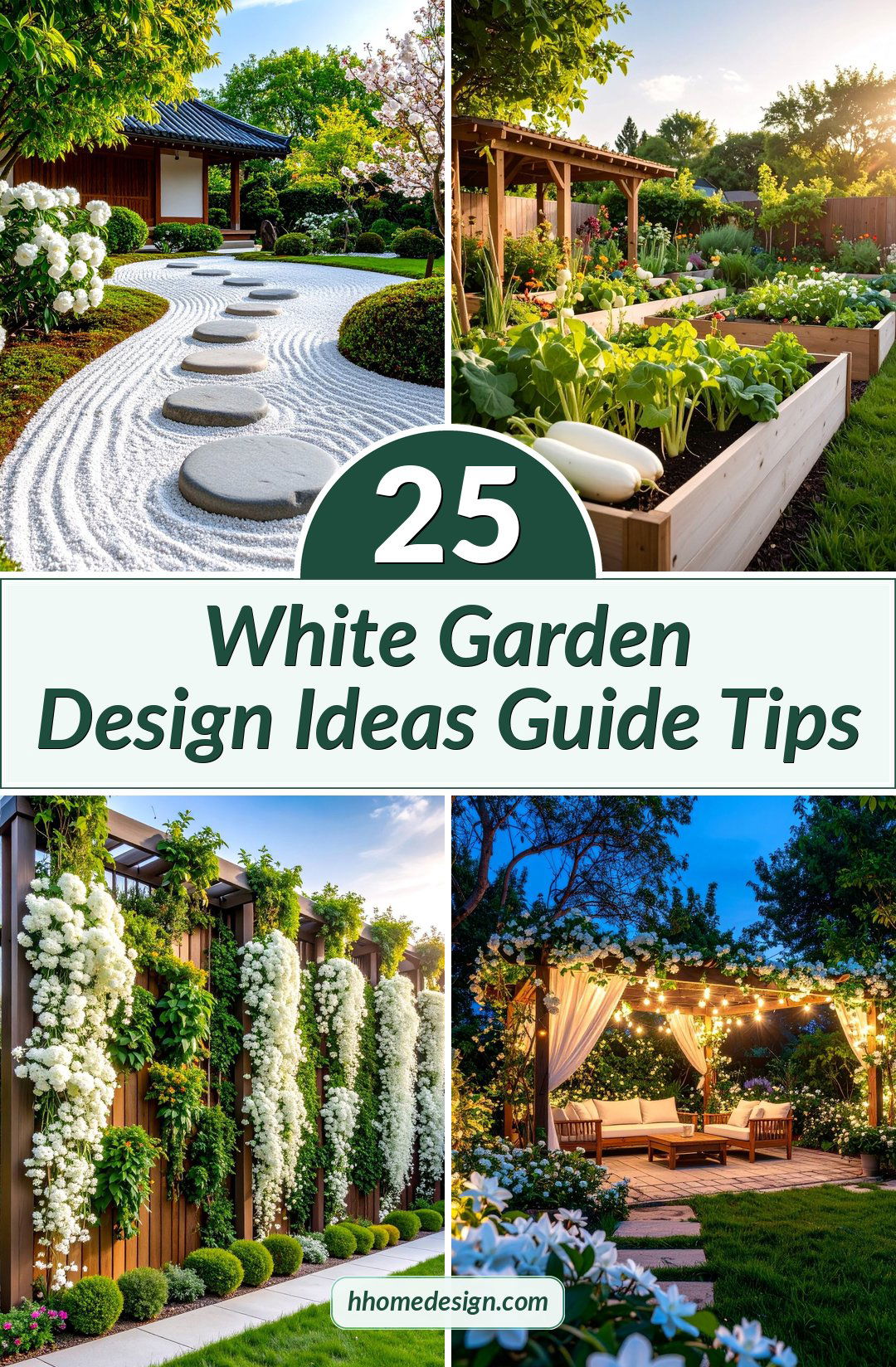
1. Classic Sissinghurst White Garden with Formal Structure
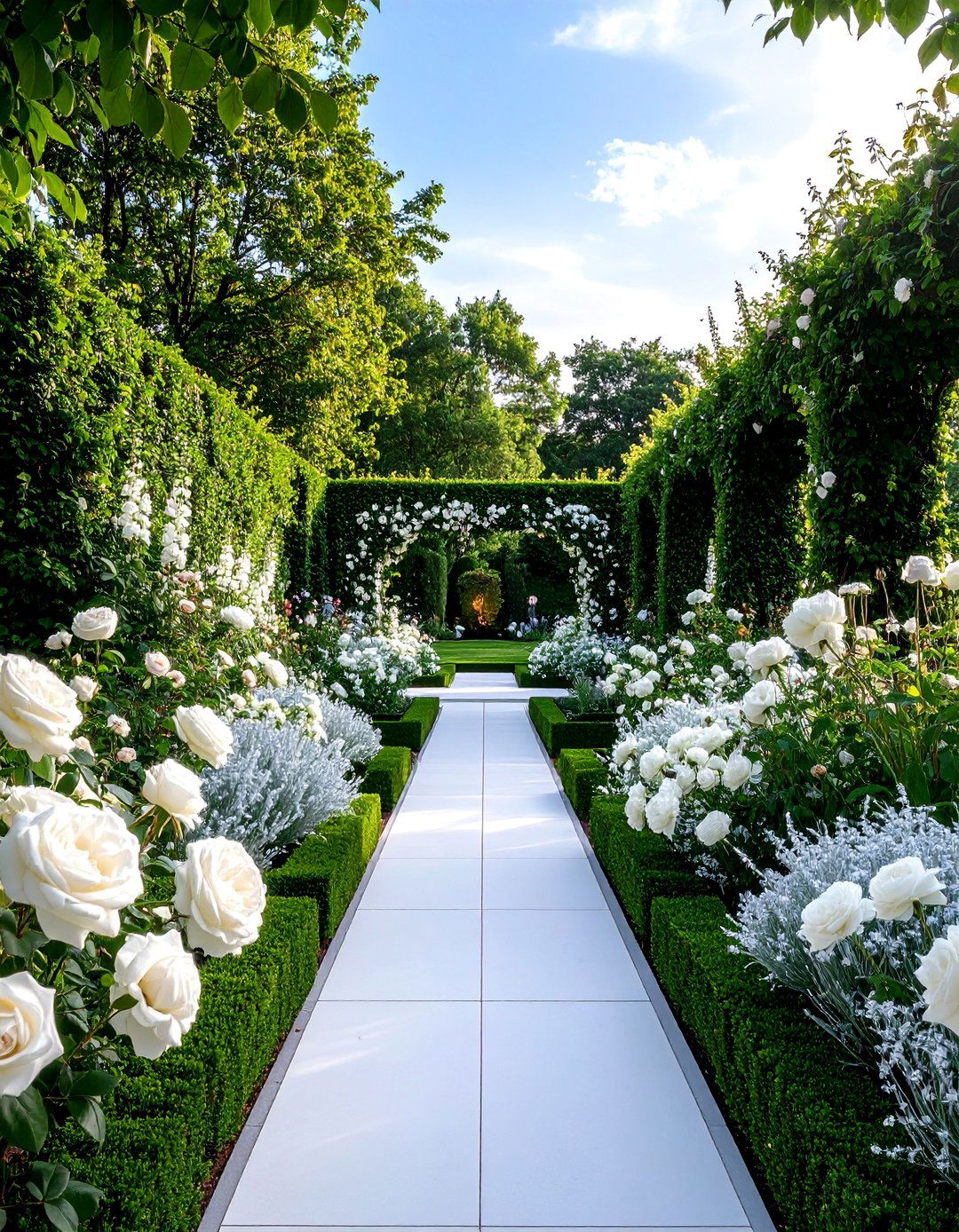
Inspired by Vita Sackville-West's legendary creation, this design combines formal boxwood hedging with densely planted white flowers in a structured grid pattern. The layout features clipped evergreen borders that provide year-round framework, while white roses, delphiniums, and peonies create dramatic seasonal displays. Silver-leaved plants like artemisia and lamb's ear add textural contrast, softening the formal lines with their flowing forms. The garden maintains visual interest through varied plant heights, from ground-hugging sweet alyssum to towering white foxgloves. This timeless approach creates an sophisticated outdoor room that serves as a peaceful retreat while demonstrating the power of monochromatic planting schemes combined with strong architectural elements.
2. Moonlight Garden with Evening-Blooming White Flowers

Transform your evening landscape into a magical sanctuary with plants specifically chosen for their nighttime appeal and luminous white blooms. Night-blooming cereus, moonflowers, and evening primrose open as darkness falls, releasing intoxicating fragrances that perfume the air. Four o'clock flowers add daytime color before revealing their white forms at dusk, while angel's trumpet provides dramatic architectural presence with downward-hanging blooms. Silver-leaved plants like dusty miller and artemisia catch and reflect available light, creating an otherworldly glow. Position seating areas strategically to enjoy the garden's transformation as daylight fades. This design celebrates the mystical qualities of white flowers after dark, offering a unique sensory experience.
3. White Cottage Garden with Mixed Textures and Heights
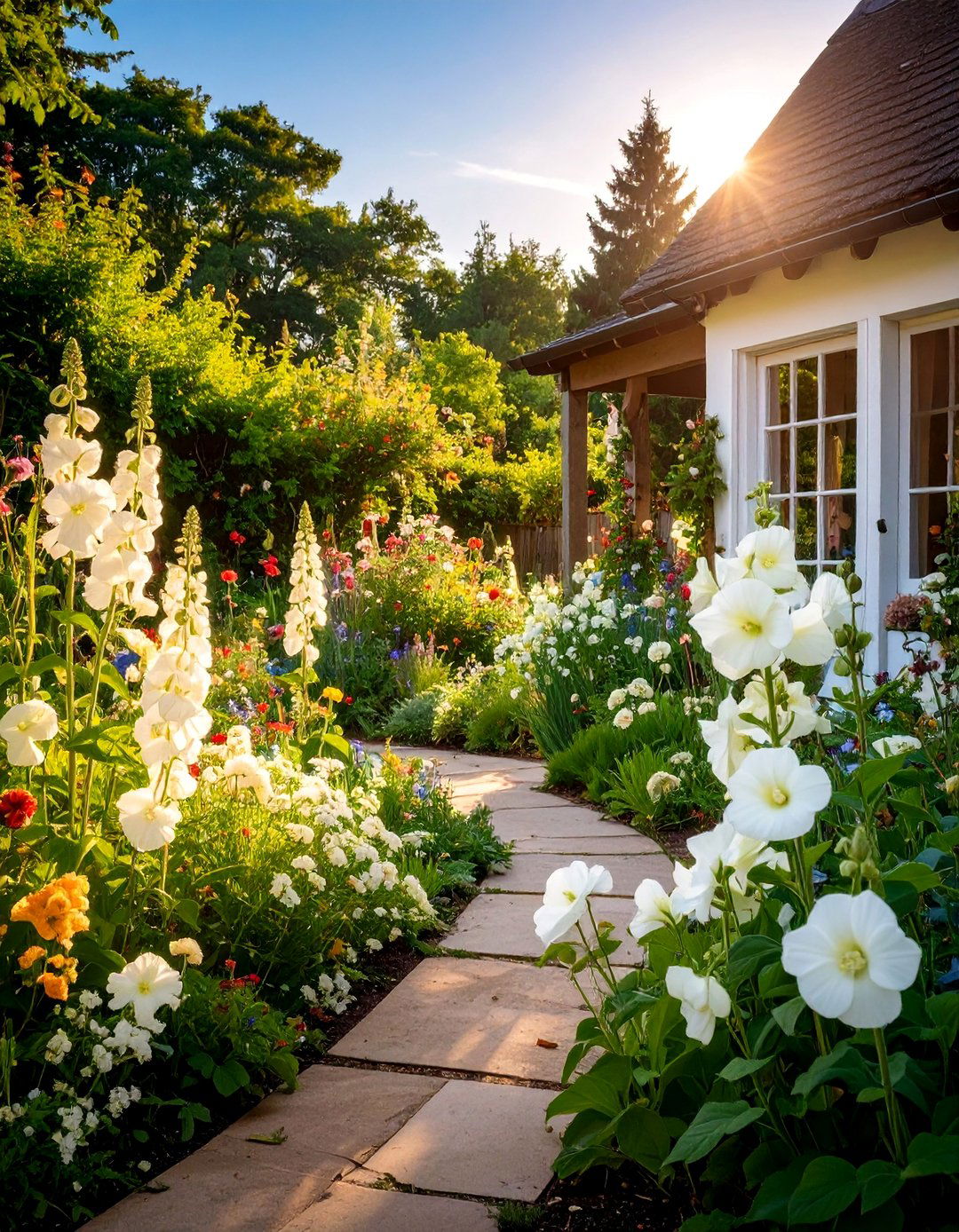
Embrace informal charm by combining cottage garden favorites in an all-white palette that maintains the style's characteristic abundance and relaxed feel. White hollyhocks tower against fences while sweet peas climb through supports, creating vertical interest without sacrificing the casual cottage aesthetic. Ground-level plantings include white peonies, shasta daisies, and creeping phlox that spill naturally onto pathways. Self-seeding annuals like white cosmos and alyssum create spontaneous drifts throughout the garden, adding to the naturalistic appearance. Incorporate white-flowering herbs such as chamomile and white lavender for fragrance and practical use. The design celebrates abundance while maintaining cohesive color unity, proving that white gardens can be both structured and wildly romantic simultaneously.
4. Formal White Parterre with Geometric Boxwood Patterns

Create elegant symmetry through precisely clipped boxwood hedging arranged in geometric patterns filled with seasonal white flowers for year-round sophistication. The evergreen framework provides permanent structure while seasonal plantings rotate through spring tulips, summer annuals, and fall-blooming asters. Central focal points feature white-flowering shrubs like hydrangeas or standard roses trained into formal shapes. Gravel pathways between planted sections enhance the formal aesthetic while providing practical access for maintenance. This design works particularly well in front gardens or formal entertaining areas where architectural precision is desired. The contrast between the dark green hedging and bright white flowers creates striking visual impact that remains elegant throughout all seasons, demonstrating classical garden design principles.
5. White Container Garden for Patios and Small Spaces
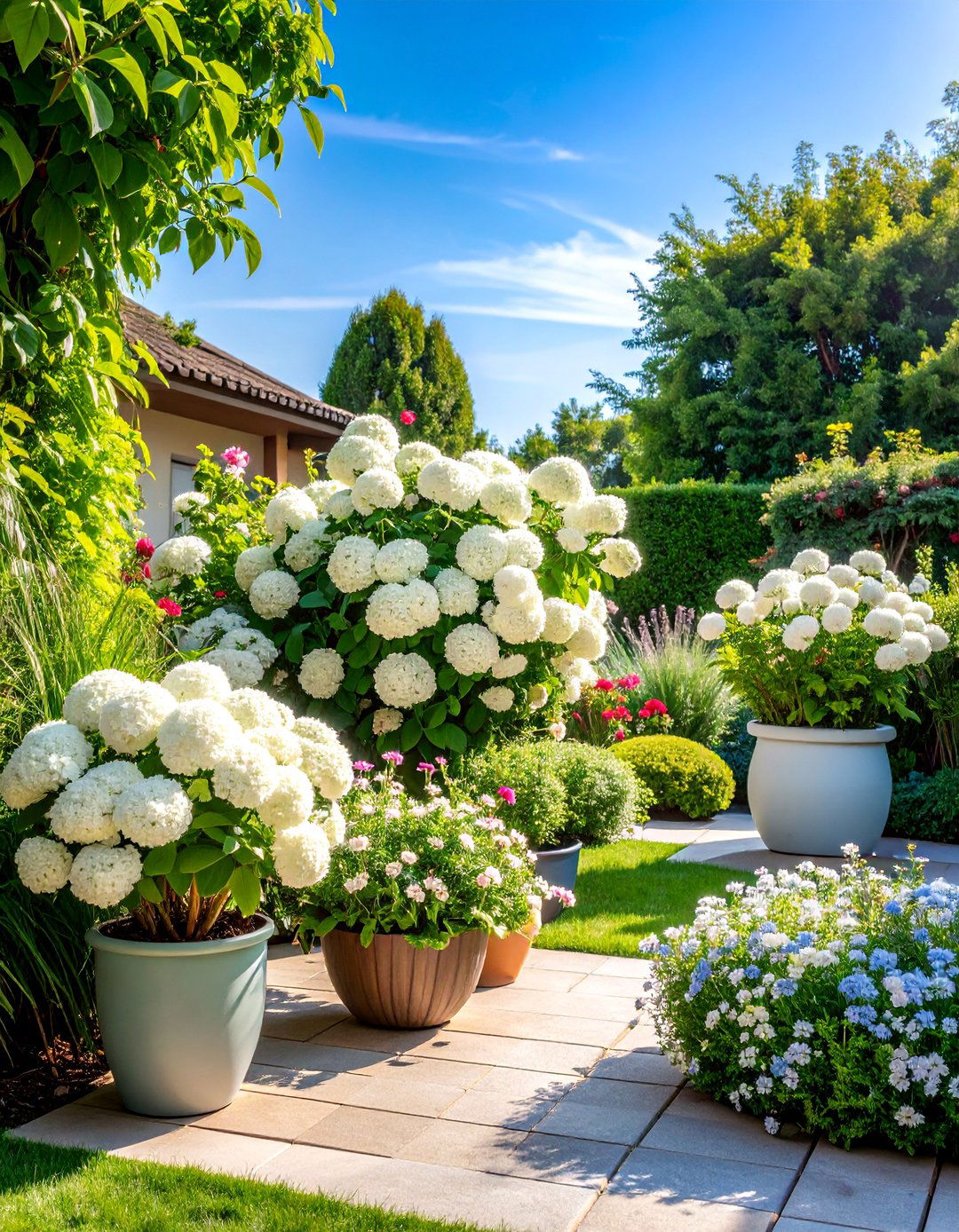
Maximize limited space through strategic container arrangements featuring white-flowering plants in coordinated vessels for instant garden impact. Large planters accommodate white hydrangeas or roses as anchor plants, while smaller containers showcase seasonal annuals like white petunias, impatiens, or begonias. Trailing plants such as white bacopa or diamond frost euphorbia soften container edges and create flowing lines. Silver-leaved plants like caladium 'White Wonder' add foliage interest between blooming periods. Arrange containers at varying heights using plant stands or pedestals to create visual depth and improve viewing angles. This approach offers flexibility for renters or those with challenging site conditions, allowing for seasonal changes and easy maintenance while achieving sophisticated white garden aesthetics.
6. Modern Minimalist White Garden with Clean Lines
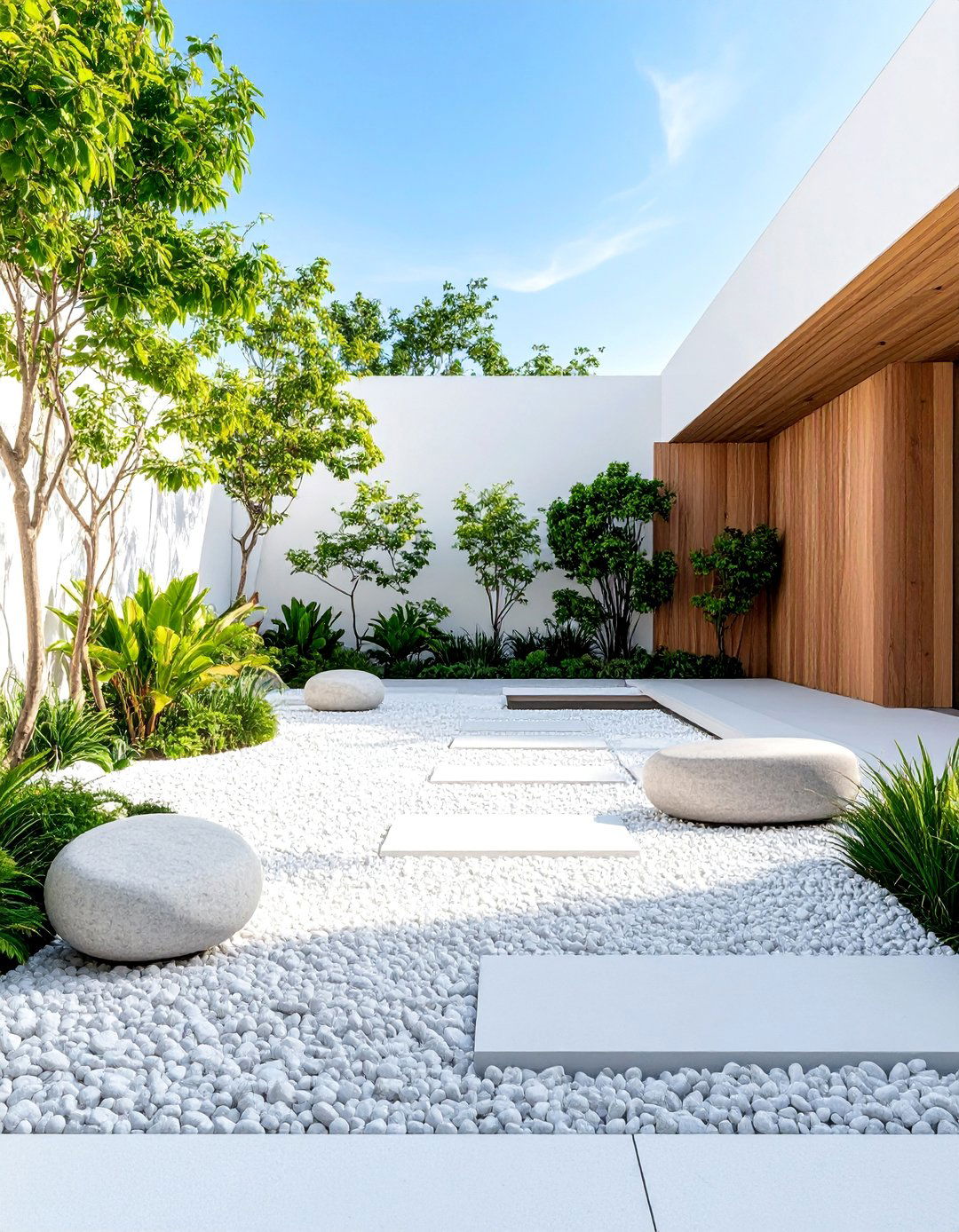
Embrace contemporary design principles through simplified plant selections and geometric layouts that emphasize form over ornate detail for sophisticated outdoor living. White-flowering architectural plants like agapanthus and calla lilies provide sculptural interest against backgrounds of clipped evergreen hedging or modern fencing. Ornamental grasses in silver tones add movement and texture while maintaining the minimalist aesthetic. Hardscaping elements include white gravel pathways, concrete planters, and sleek water features that complement rather than compete with plantings. The design focuses on quality over quantity, with each plant carefully chosen for its contribution to the overall composition. This approach suits modern homes and busy lifestyles, requiring minimal maintenance while delivering maximum visual impact through thoughtful restraint.
7. White Shade Garden with Variegated Foliage Plants
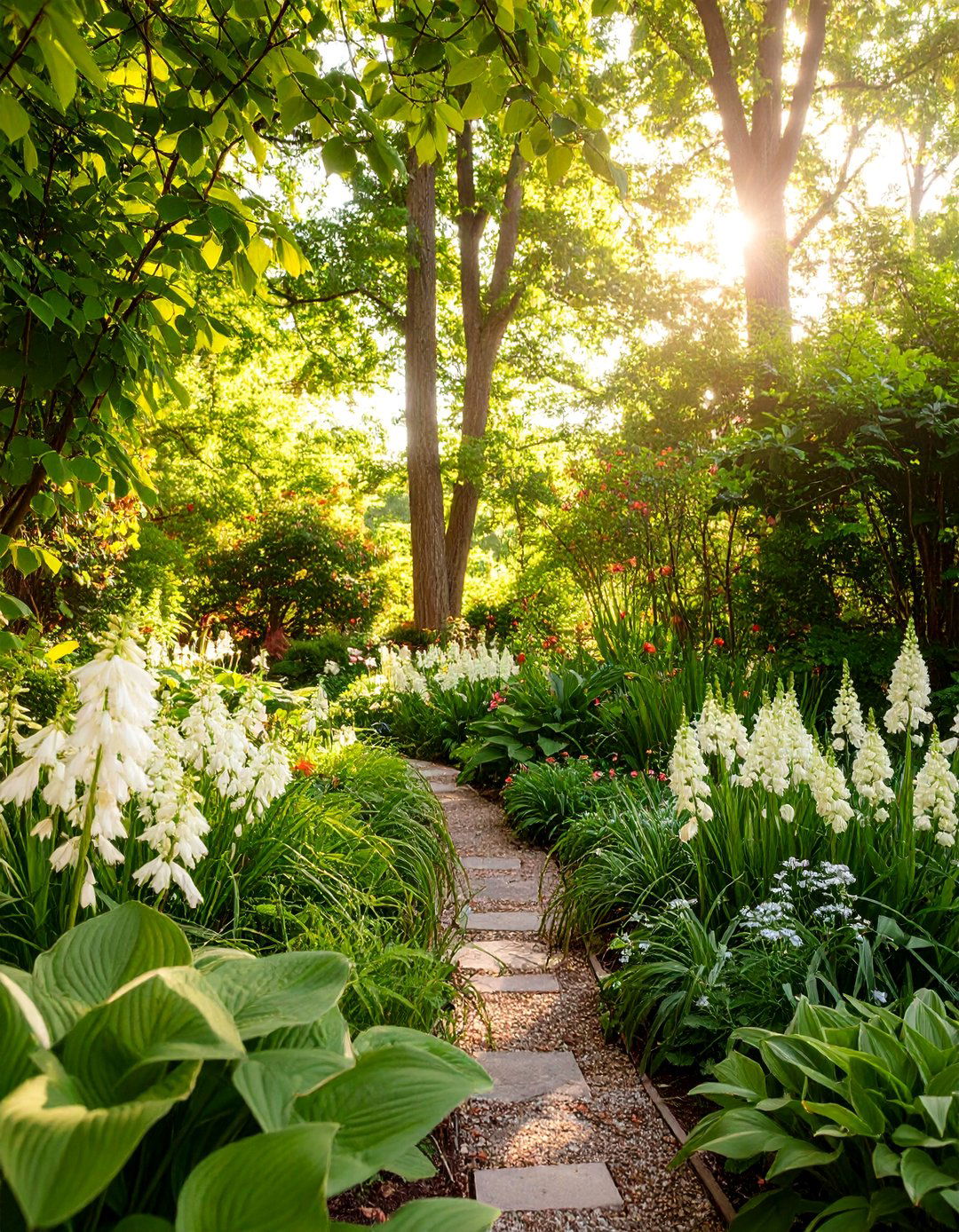
Transform challenging shaded areas into luminous retreats using white-flowering and variegated plants that thrive in low-light conditions with remarkable beauty. Hostas with white margins or entirely white leaves form the backbone of the design, complemented by white astilbe, caladium, and begonias for seasonal color. White-flowering shrubs like hydrangeas and rhododendrons provide structure and extended blooming periods. Ground covers such as white-flowering ajuga or lamium create flowing carpets beneath taller plants. The combination of white flowers and variegated foliage creates the illusion of dappled sunlight, brightening dark corners naturally. This design proves that shade gardens can be as vibrant and interesting as sunny locations while requiring less maintenance and water.
8. White Rose Garden with Climbing and Shrub Varieties

Celebrate the queen of flowers through carefully selected white rose varieties that provide continuous blooms and intoxicating fragrance throughout the growing season. Climbing roses like 'Iceberg' or 'New Dawn' cover arbors and fences, creating romantic vertical displays that frame garden views. Shrub roses form the middle layer with varieties chosen for disease resistance and repeat blooming characteristics. Ground-cover roses cascade over walls or fill difficult slopes with their spreading habit. Underplant with white-flowering companions like catmint or lavender that complement rather than compete with the roses. The design incorporates seating areas positioned to take advantage of the fragrance and views. Regular pruning and feeding maintain health and flowering performance, rewarding gardeners with months of beautiful blooms.
9. White Herb Garden with Aromatic Silver Foliage
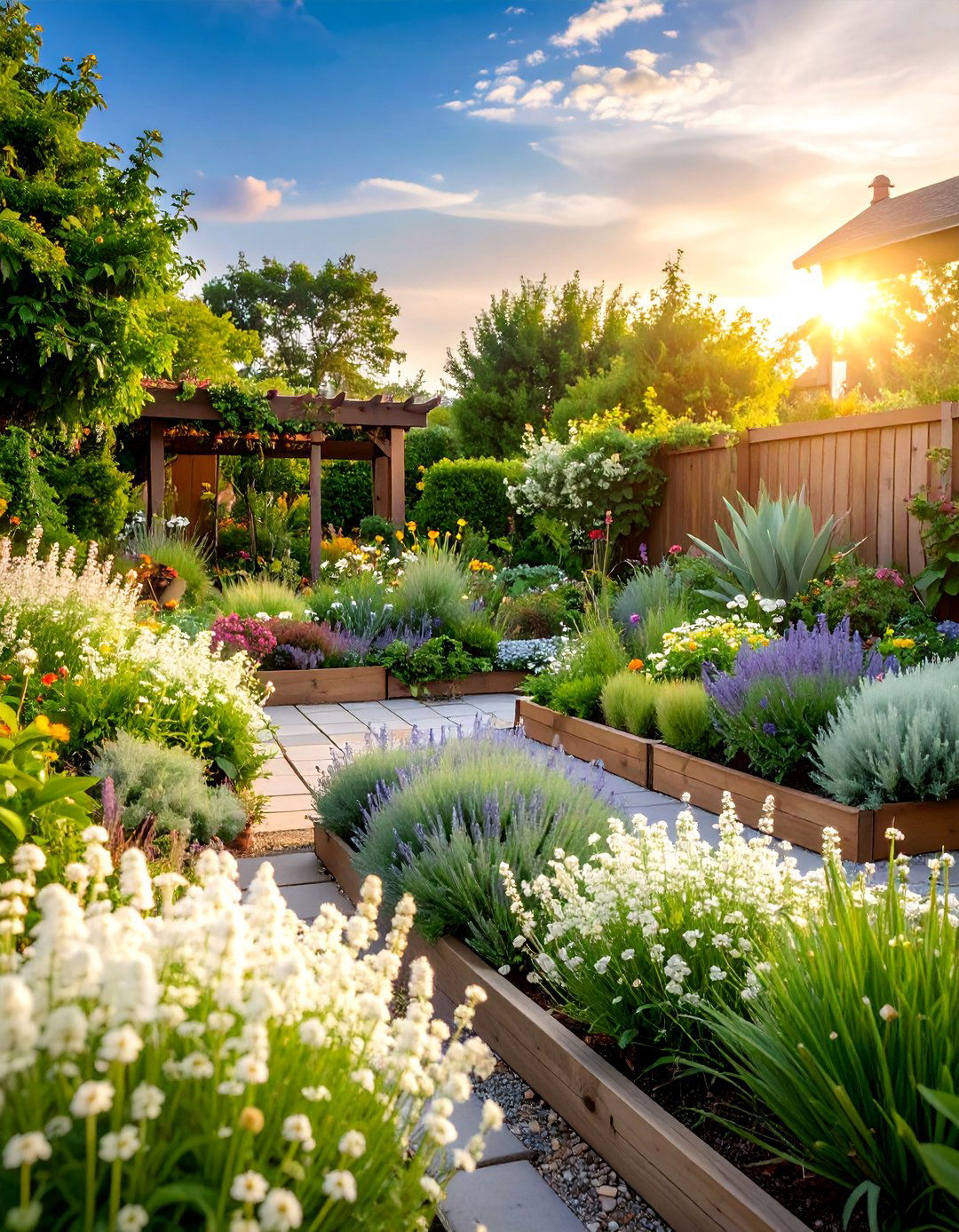
Combine culinary and ornamental value through aromatic herbs with white flowers and silver foliage that engage multiple senses while providing kitchen ingredients. White-flowering thyme varieties create fragrant ground covers, while silver-leaved sage and lavender add height and structure to the design. White rosemary blooms provide evergreen interest and culinary versatility. Annual herbs like white basil and cilantro flowers offer seasonal variation and continuous harvest opportunities. The garden design incorporates raised beds or containers for improved drainage and easy access. Pathways between planted areas allow for comfortable harvesting and maintenance. This functional approach to white gardening demonstrates how beauty and practicality can combine successfully, creating spaces that nourish both body and soul through their dual purpose.
10. White Wildflower Meadow with Native Plants
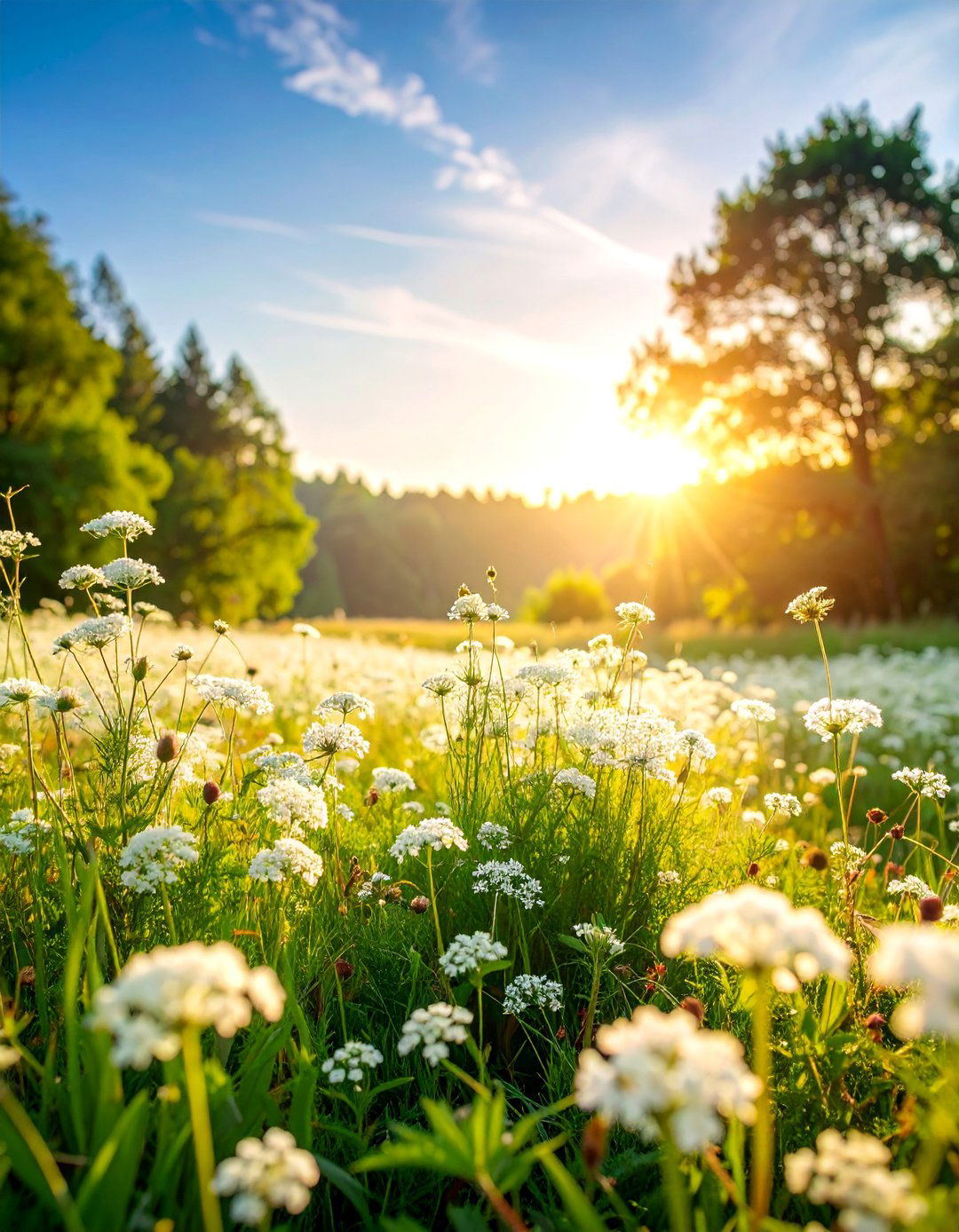
Create naturalistic beauty through native wildflowers in white that support local wildlife while requiring minimal maintenance once established successfully. Queen Anne's lace, white asters, and native white lupines provide the foundation, supplemented by regional specialties adapted to local growing conditions. The informal design mimics natural meadow patterns with irregular drifts and varying plant heights creating dynamic seasonal displays. Grasses interspersed throughout add movement and provide habitat for beneficial insects and birds. Maintenance involves selective mowing or cutting to prevent aggressive species from dominating while allowing desired plants to self-seed. This approach works well for larger properties or naturalistic landscapes where formal maintenance is impractical. The result is a sustainable, evolving garden that changes naturally with seasons and weather patterns.
11. White Water Garden with Aquatic and Bog Plants
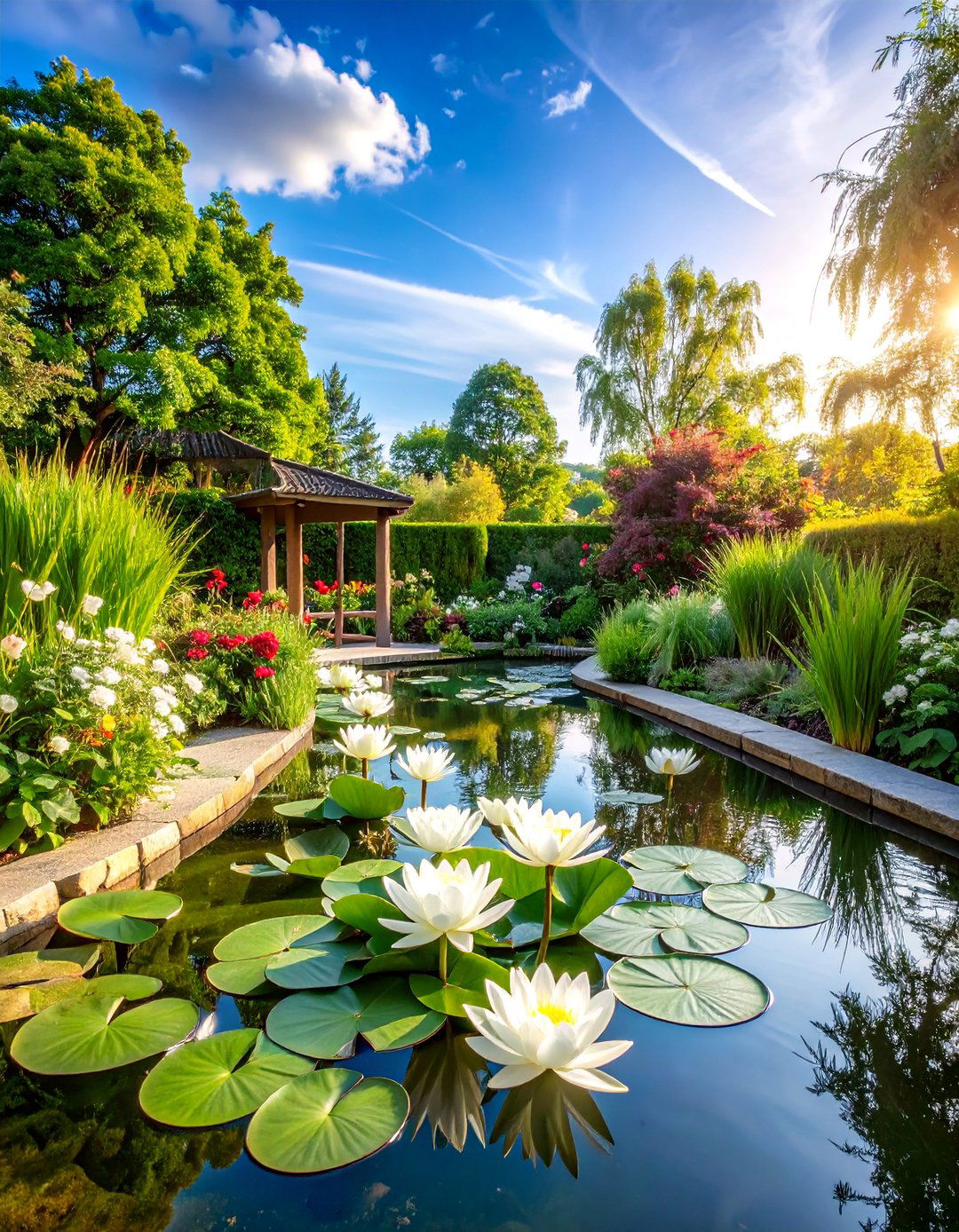
Incorporate water features surrounded by moisture-loving white-flowering plants that create cooling effects and attract wildlife to your garden sanctuary. White water lilies float on pond surfaces while white iris and arrowhead provide vertical accents along water edges. Bog plants like white astilbe and cardinal flower add color to perpetually moist areas. The design includes both formal and informal water features from geometric reflecting pools to naturalistic stream beds. White-flowering marginal plants soften hard edges while providing habitat for frogs and beneficial insects. Maintenance involves regular water quality monitoring and seasonal plant division to maintain healthy ecosystems. This approach combines the soothing effects of moving water with the ethereal beauty of white flowers, creating especially peaceful outdoor retreats.
12. White Fragrant Evening Garden for Night Enjoyment
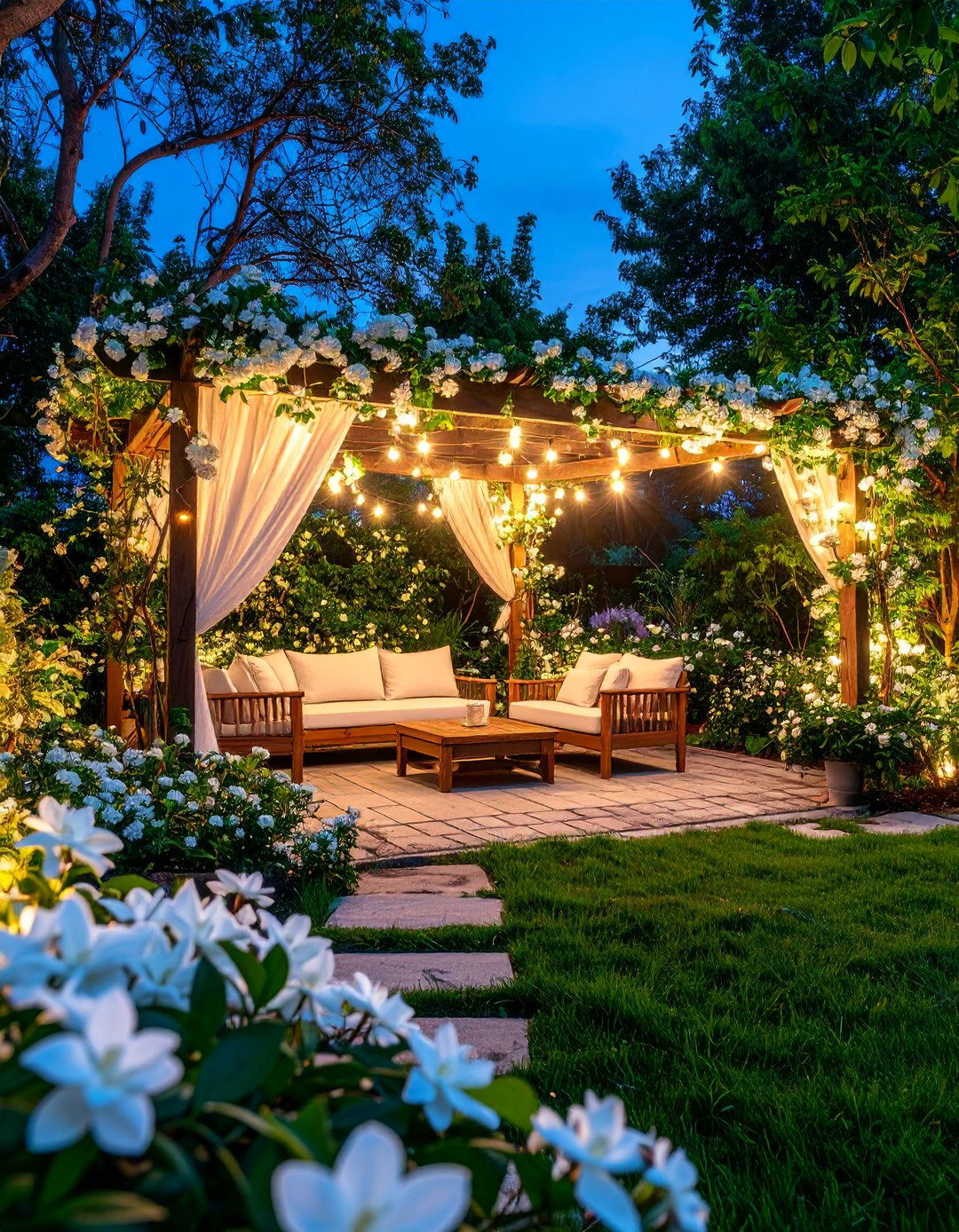
Design specifically for after-dark enjoyment through white flowers with pronounced evening fragrances that transform your garden into an sensory wonderland. Night-blooming jasmine, white gardenia, and tuberose release their strongest scents as temperatures cool, creating an intoxicating atmosphere for evening entertaining. White flowering tobacco and sweet alyssum add lighter fragrances that complement the more intense perfumes. The design incorporates comfortable seating positioned to take advantage of prevailing breezes that carry fragrances throughout the space. Subtle lighting highlights key plants without overwhelming their natural glow. This specialized approach to white gardening creates unique outdoor experiences that celebrate the garden's transformation after sunset, offering respite from busy daytime schedules.
13. White Zen Garden with Minimalist Japanese Elements
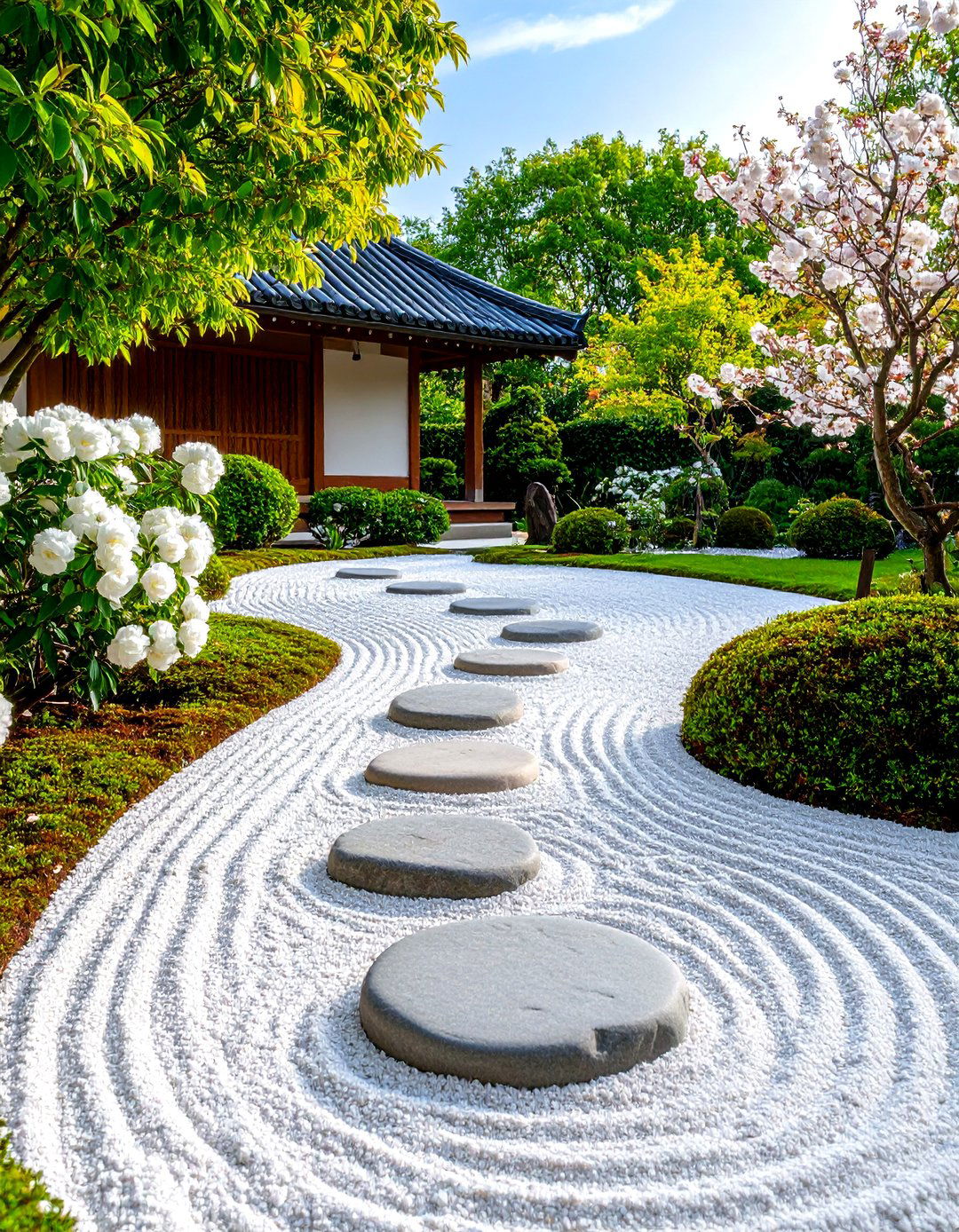
Embrace tranquility through simplified plantings and traditional Japanese design elements that create meditative spaces for contemplation and stress relief. White camellias and azaleas provide seasonal blooms while carefully pruned evergreens maintain year-round structure and visual interest. Raked white gravel areas represent water and create patterns that change with maintenance, adding active meditation opportunities. Natural stone elements provide seating and visual weight while bamboo screens create privacy and wind protection. The design emphasizes negative space as much as planted areas, allowing each element to be fully appreciated. Maintenance becomes a mindful practice that enhances the garden's peaceful qualities. This approach suits busy modern lifestyles by providing accessible outdoor sanctuaries that require focused but limited time investment.
14. White Perennial Border with Four-Season Interest

Create enduring beauty through carefully selected white-flowering perennials that provide extended blooming periods and seasonal progression throughout the entire growing year. Spring begins with white tulips and daffodils, followed by summer-blooming phlox, echinacea, and bee balm that support pollinators abundantly. Fall-blooming asters and anemones extend the season while evergreen elements provide winter structure and visual continuity. The design incorporates plants with attractive seed heads or berries that add winter interest and provide food for wildlife. Layered heights create visual depth while strategic repetition unifies the composition throughout the garden space. Regular division and soil amendment maintain plant health and flowering performance over many years, creating sustainable landscapes that improve with proper care.
15. White Annual Cutting Garden for Fresh Flower Arrangements

Focus on productive beauty through white-flowering annuals specifically chosen for their cut flower qualities and continuous production throughout the growing season. Cosmos, zinnias, and sunflowers in white varieties provide the backbone, supplemented by supporting players like white stock and larkspur for fragrance. The utilitarian design emphasizes straight rows for easy cultivation and harvesting, with pathways providing comfortable access during all weather conditions. Succession planting ensures continuous blooms from spring through frost, maximizing productivity and extending the harvest season significantly. Processing areas near the garden include potting benches and tool storage for convenient arrangement making. This functional approach to white gardening provides both garden beauty and indoor enjoyment, creating sustainable sources of fresh flowers for special occasions.
16. White Winter Garden with Evergreen Structure
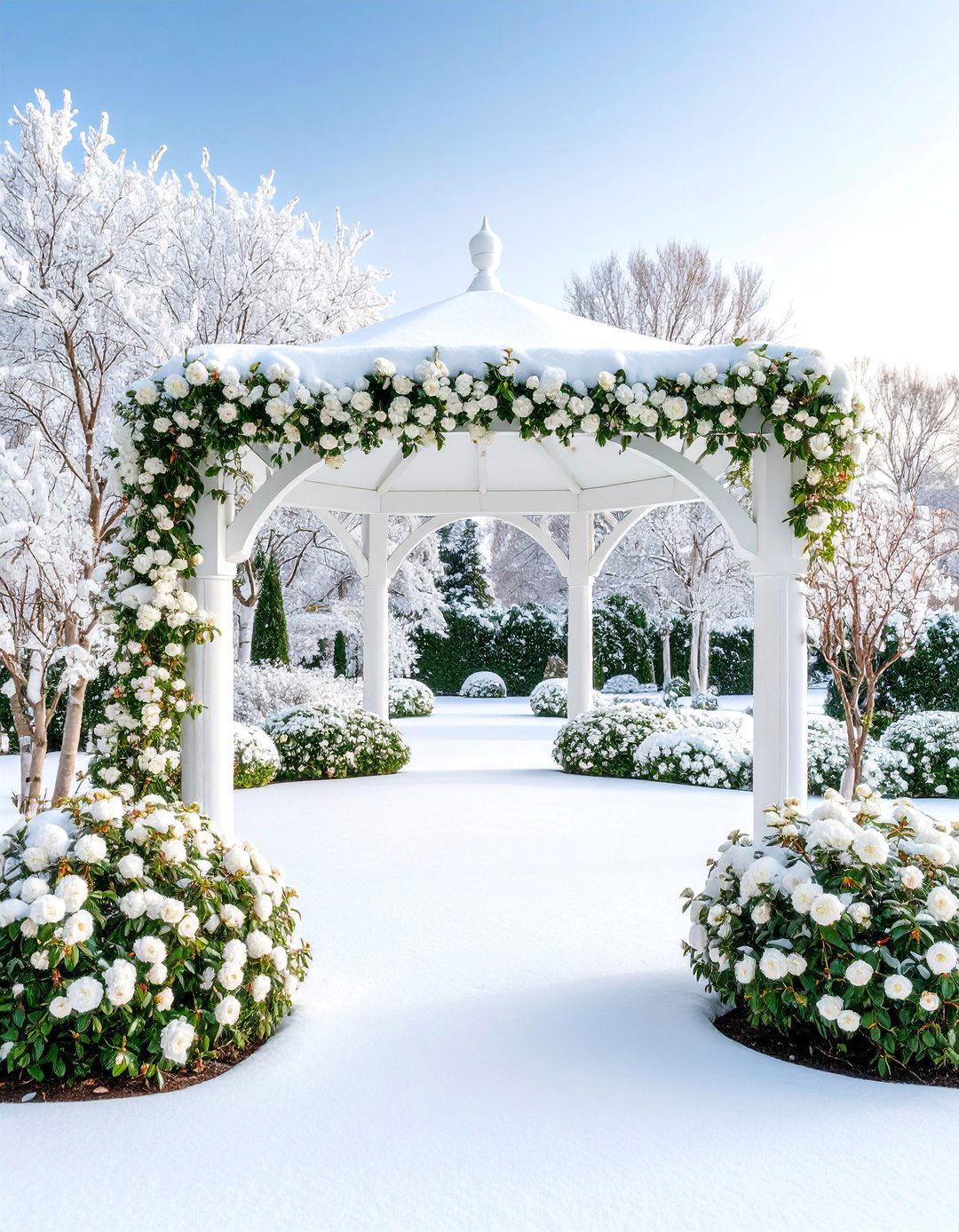
Maintain garden interest during dormant seasons through white-flowering evergreens and plants with winter bark or berry interest that provide year-round beauty. White-flowering camellias bloom during mild winter periods while evergreen magnolias provide glossy foliage and architectural presence throughout cold months. Plants with white or silver bark like birch trees add vertical interest and reflect available winter light effectively. Ornamental grasses with pale seed heads provide movement and texture during windy winter days. The design emphasizes plants that look attractive covered with snow or frost, creating magical winter scenes. Strategic placement near windows allows indoor viewing during harsh weather. This specialized approach ensures the white garden remains attractive and interesting even during the most challenging seasons.
17. White Mediterranean Garden with Drought-Tolerant Plants
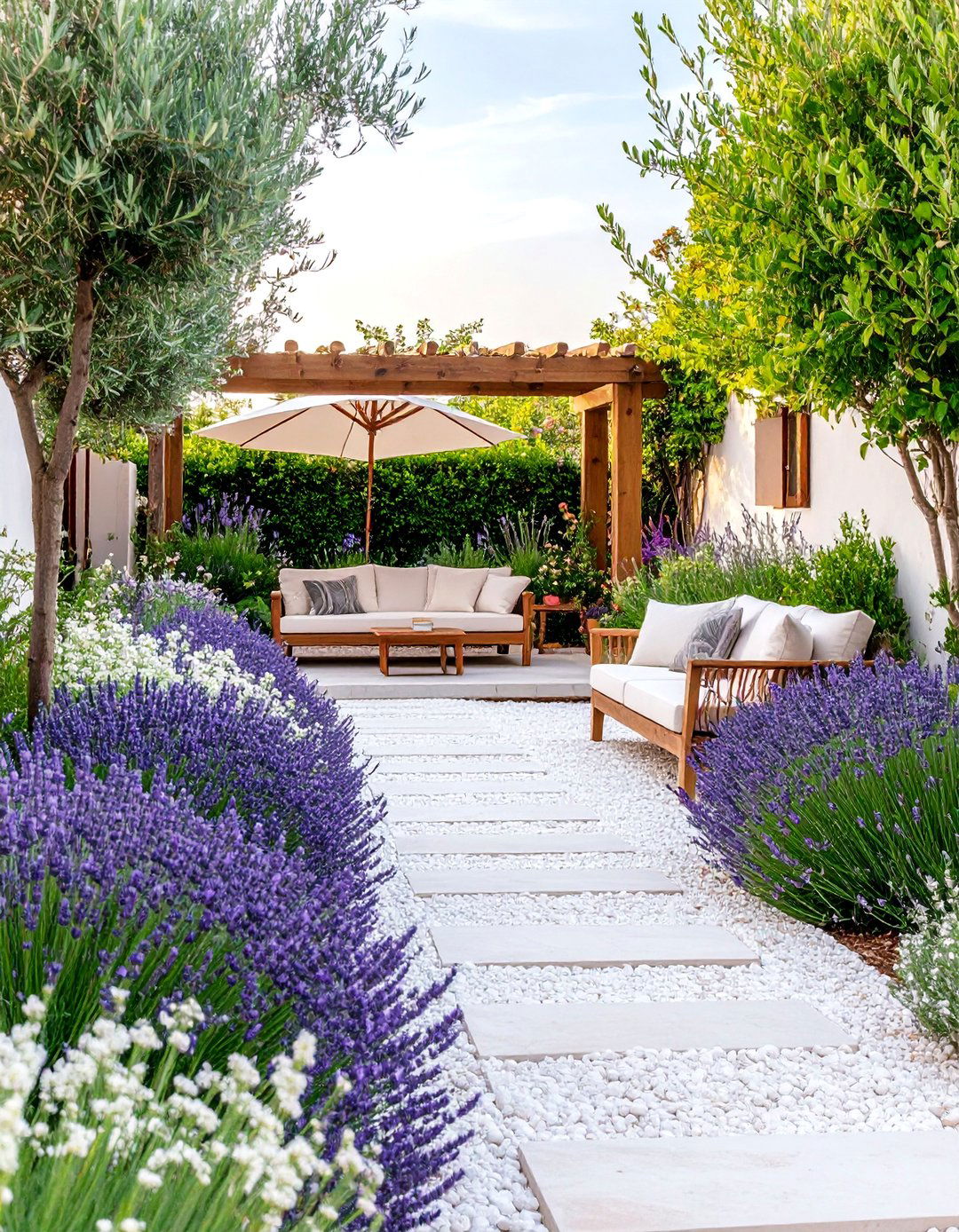
Adapt white garden concepts to arid climates through drought-tolerant plants that thrive in challenging conditions while maintaining sophisticated color schemes. White-flowering lavender, rosemary, and sage provide the foundation, supplemented by white-blooming succulents and native plants adapted to local rainfall patterns. The design incorporates gravel mulches and hardscaping that reduce water needs while providing attractive backgrounds for plant displays. White-flowering trees like olive or desert willow add height and shade for comfortable seating areas. Maintenance focuses on efficient water use through drip irrigation and appropriate plant spacing that maximizes resource utilization. This sustainable approach demonstrates how white gardens can adapt to environmental constraints while remaining beautiful and functional in water-limited landscapes.
18. White Ground Cover Garden for Difficult Slopes

Solve challenging terrain problems through spreading white-flowering plants that provide erosion control while creating attractive low-maintenance landscapes on difficult sites. White-flowering sedum varieties and creeping phlox establish quickly and spread naturally, reducing the need for intensive soil preparation or ongoing maintenance. The design incorporates terracing where necessary to slow water runoff while providing level areas for specimen plants or seating. Groundcovers with different textures and bloom times create seasonal interest without requiring access for regular maintenance activities. Strategic placement of larger anchor plants provides visual weight and helps establish the overall design composition. This practical approach solves common landscape problems while creating beauty from challenging conditions that might otherwise remain problematic or unsightly.
19. White Vertical Garden with Climbing Plants and Vines
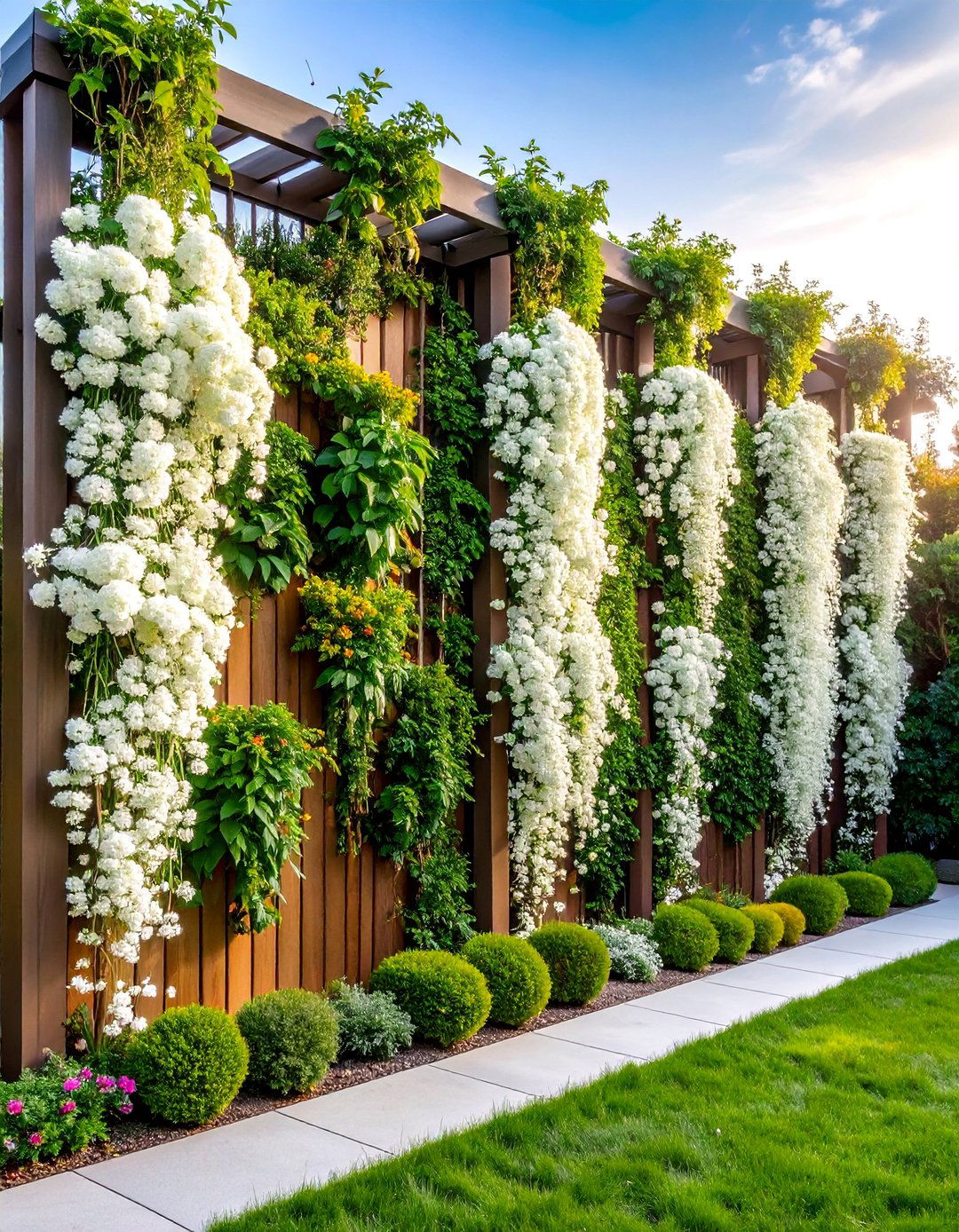
Maximize growing space through white-flowering climbers that create living walls and privacy screens while adding vertical interest to confined areas. White clematis varieties provide dramatic blooms at different heights, while white-flowering vines like moonflower create evening interest and fragrance. The design incorporates various support structures from trellises to pergolas that accommodate different plant growth habits and mature sizes. Annual vines like white morning glories provide quick coverage while perennial climbers establish permanent frameworks over time. Maintenance involves regular pruning and training to direct growth and maintain desired coverage patterns. This space-efficient approach works well for urban gardens or properties with limited horizontal growing space, creating dramatic impact through vertical development.
20. White Edible Garden with Ornamental Food Plants

Combine beauty and function through white-flowering vegetables and herbs that provide both visual appeal and harvest opportunities throughout the growing season. White eggplants, cauliflower, and white pumpkins add unique elements to traditional vegetable gardens while maintaining ornamental value. Flowering herbs like white basil and cilantone create attractive displays before harvest, extending their decorative period significantly. The design incorporates raised beds or attractive containers that elevate the growing area for better display and easier maintenance access. Companion planting with white-flowering ornamentals creates mixed borders that disguise the utilitarian nature of food production. This innovative approach demonstrates how productive gardening can be beautiful and suitable for front yard locations or formal landscapes.
21. White Succulent Garden for Low-Water Environments
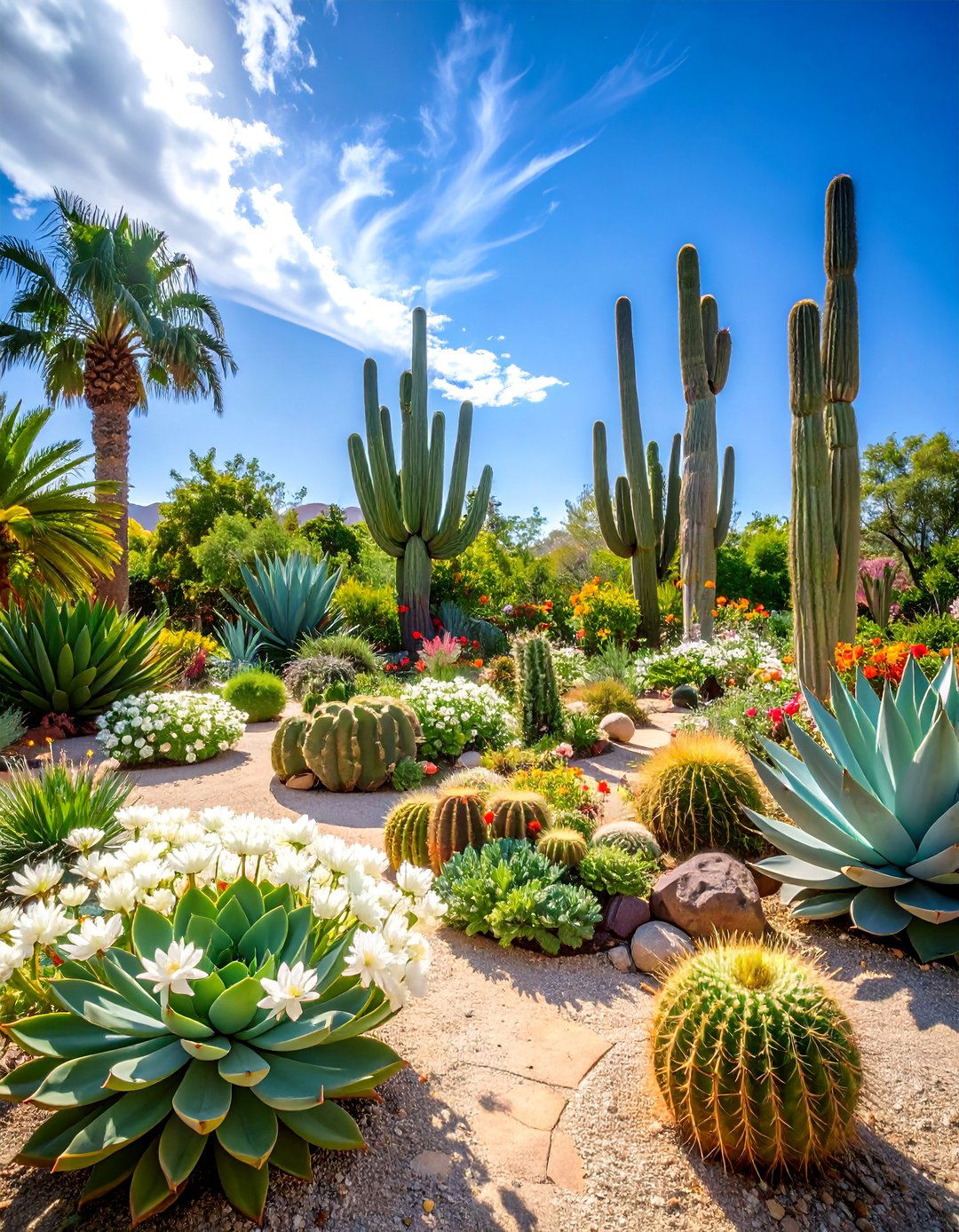
Create striking displays through white-flowering succulents and architectural plants that require minimal water while providing maximum visual impact in challenging conditions. White-blooming echeveria, ghost plants, and string of pearls create textural variety while maintaining the cohesive color scheme throughout all seasons. The design emphasizes container growing and raised beds with excellent drainage that prevent root rot in heavy soils. Decorative mulches like white gravel or crushed shell complement the plant colors while reducing water evaporation from soil surfaces. The garden requires minimal maintenance once established, making it suitable for vacation homes or busy lifestyles. This water-wise approach proves that stunning gardens are possible even in drought-prone areas without sacrificing beauty or interest.
22. White Tropical Garden for Warm Climate Zones
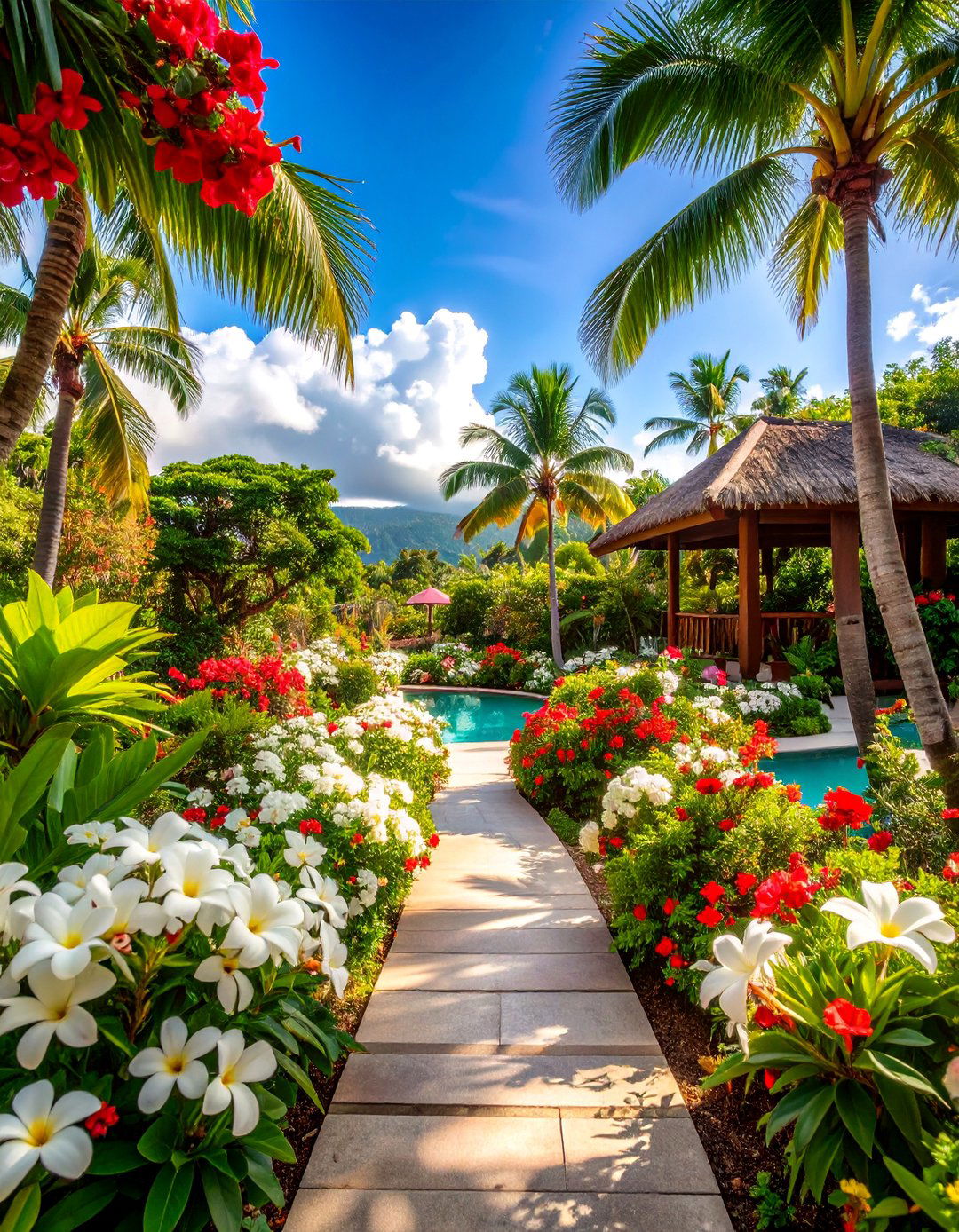
Adapt white garden concepts to tropical and subtropical climates through heat-loving plants that provide lush beauty and exotic appeal year-round. White-flowering hibiscus, plumeria, and bird of paradise create dramatic tropical displays with oversized blooms and glossy foliage that thrives in warm conditions. The design incorporates palms and tropical foliage plants with white or variegated leaves that add architectural structure and visual cooling effects. Regular water and feeding support the rapid growth typical of tropical plants while maintaining healthy flowering performance. Maintenance involves managing plant size through regular pruning and providing protection during occasional cold periods. This specialized approach creates resort-like atmospheres in suitable climates while demonstrating the adaptability of white garden principles across different growing environments.
23. White Rock Garden with Alpine and Desert Plants
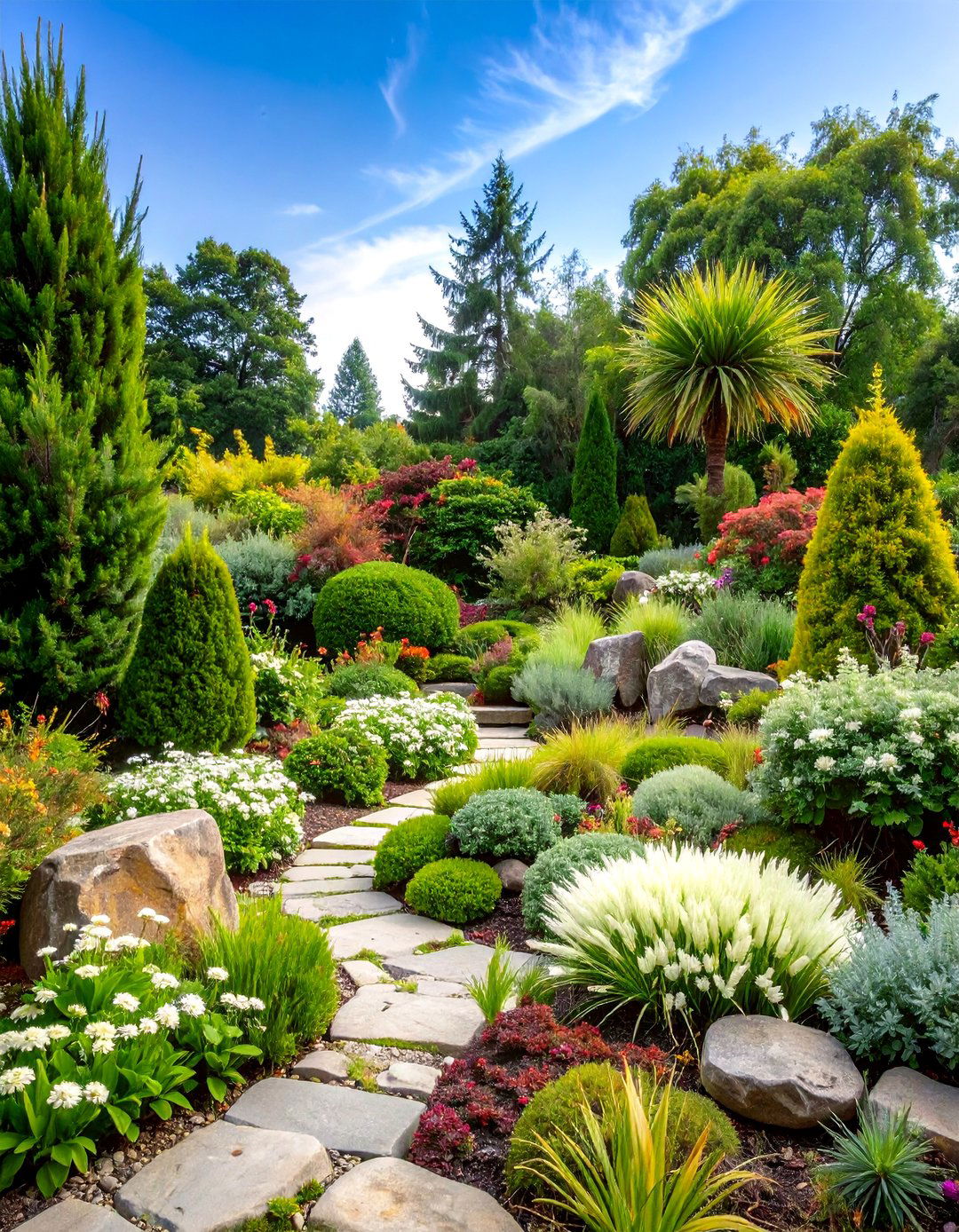
Transform challenging rocky terrain into sophisticated displays through white-flowering alpine plants and succulents that thrive in well-drained, challenging growing conditions. White-flowering sedums, dianthus, and native rock plants create naturalistic displays that complement rather than fight existing site conditions. The design incorporates existing rocks as design elements while adding additional stone for improved drainage and visual interest. Gravel mulches suppress weeds while providing appropriate growing medium for specialized plants that require excellent drainage to survive winter conditions. Maintenance involves minimal watering and occasional weeding rather than intensive cultivation typical of traditional perennial borders. This sustainable approach works with natural site conditions to create distinctive gardens that require minimal ongoing inputs once properly established.
24. White Ornamental Grass Garden with Movement and Texture
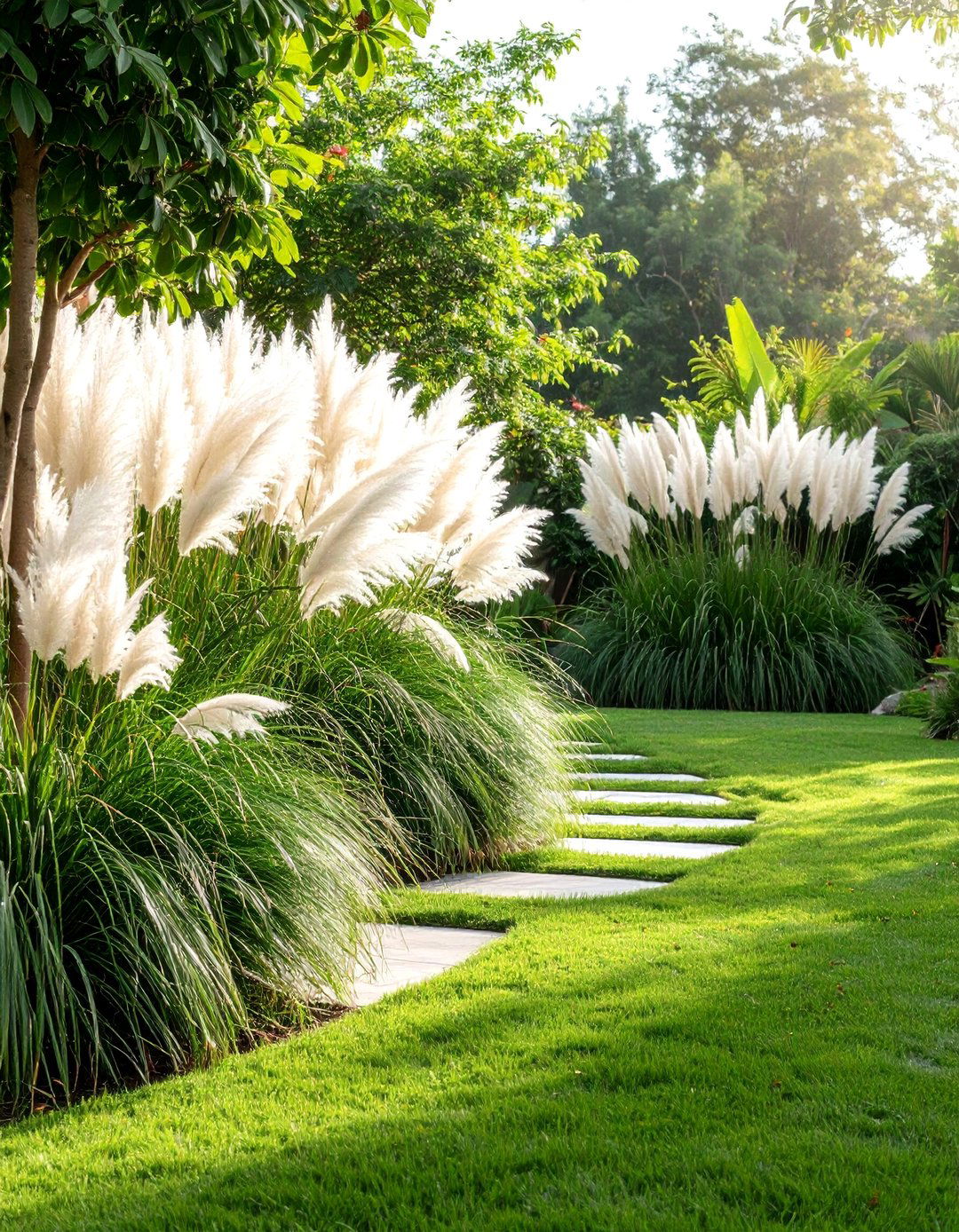
Create dynamic displays through white-flowering ornamental grasses and companion plants that provide movement, texture, and seasonal interest throughout the entire growing year. White-plumed pampas grass and fountain grass varieties provide vertical accents, while shorter grasses like white-variegated mondo grass create flowing ground covers. The design emphasizes mass plantings that create dramatic impact through repetition rather than relying on individual specimen plants. Seasonal changes provide ongoing interest as grasses develop from spring emergence through winter dormancy, creating an ever-changing display. Maintenance involves annual cutting back and occasional division to maintain vigorous growth and prevent overcrowding. This contemporary approach to white gardening creates sophisticated landscapes that work well with modern architecture while requiring relatively minimal ongoing care.
25. White Entrance Garden for Welcoming Curb Appeal
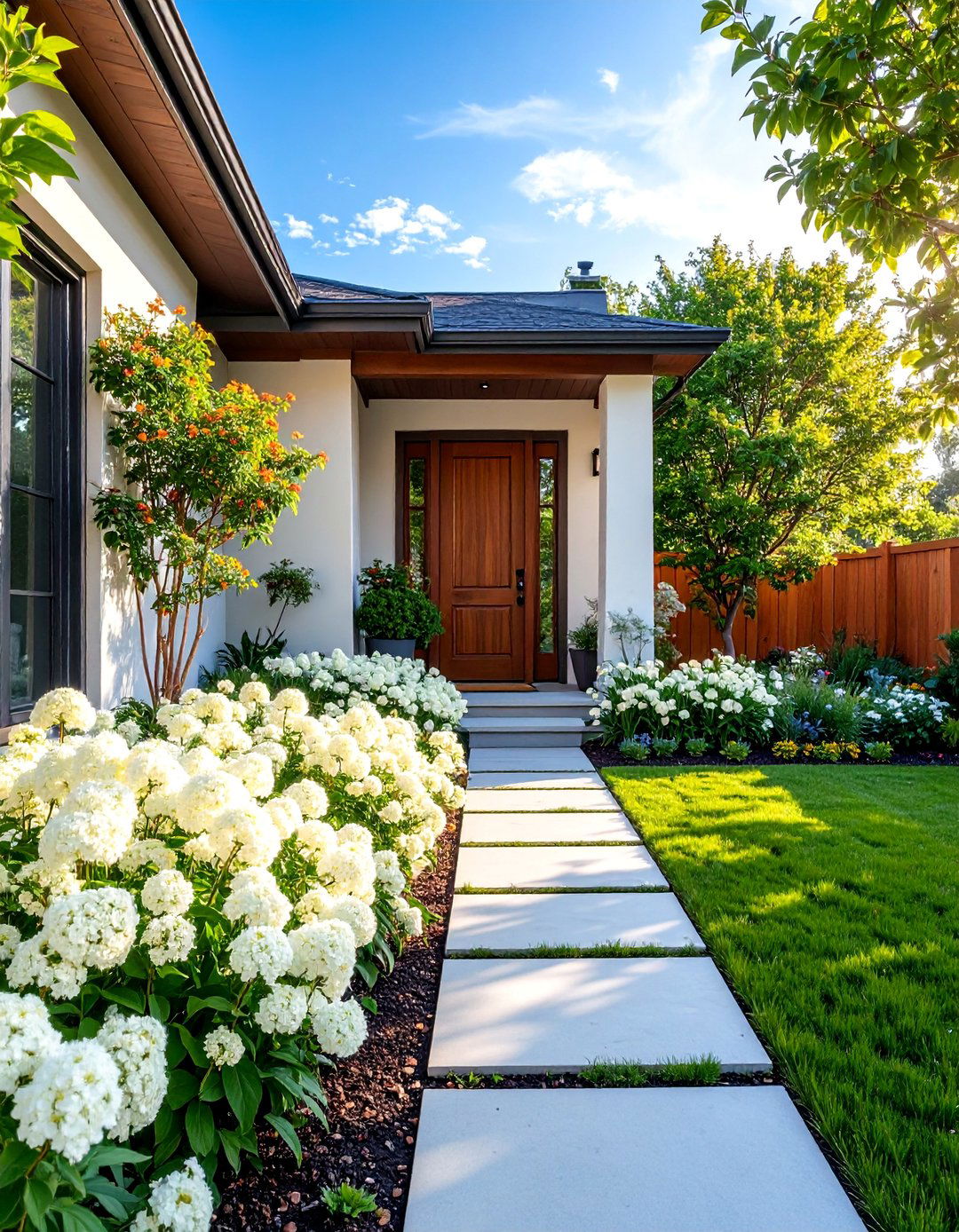
Create memorable first impressions through strategic white plantings that enhance home architecture while providing welcoming, sophisticated entrance displays throughout all seasons. White-flowering foundation plants like hydrangeas and roses establish the framework, while seasonal annuals in containers provide changeable color accents. The design incorporates lighting that highlights key plants during evening hours while providing safe passage along walkways and steps. Symmetrical plantings enhance formal architecture while informal arrangements complement casual home styles more appropriately. Regular maintenance keeps the entrance looking polished and welcoming, reflecting care and attention to detail that extends to the entire property. This important application of white garden principles creates lasting positive impressions while demonstrating the homeowner's gardening expertise and attention to aesthetic detail.
Conclusion:
White garden designs offer remarkable versatility for creating sophisticated outdoor spaces that work beautifully in any climate, style, or size constraint. From formal parterre layouts to casual cottage gardens, white flowers and silver foliage provide timeless elegance while adapting to personal preferences and site conditions. These gardens excel in both sunny and shaded locations, require varying maintenance levels to suit different lifestyles, and provide year-round interest through thoughtful plant selection. Whether seeking dramatic moonlight displays, practical cutting gardens, or low-maintenance landscapes, white garden themes offer endless possibilities for creating memorable, beautiful outdoor environments that enhance both property value and personal enjoyment.




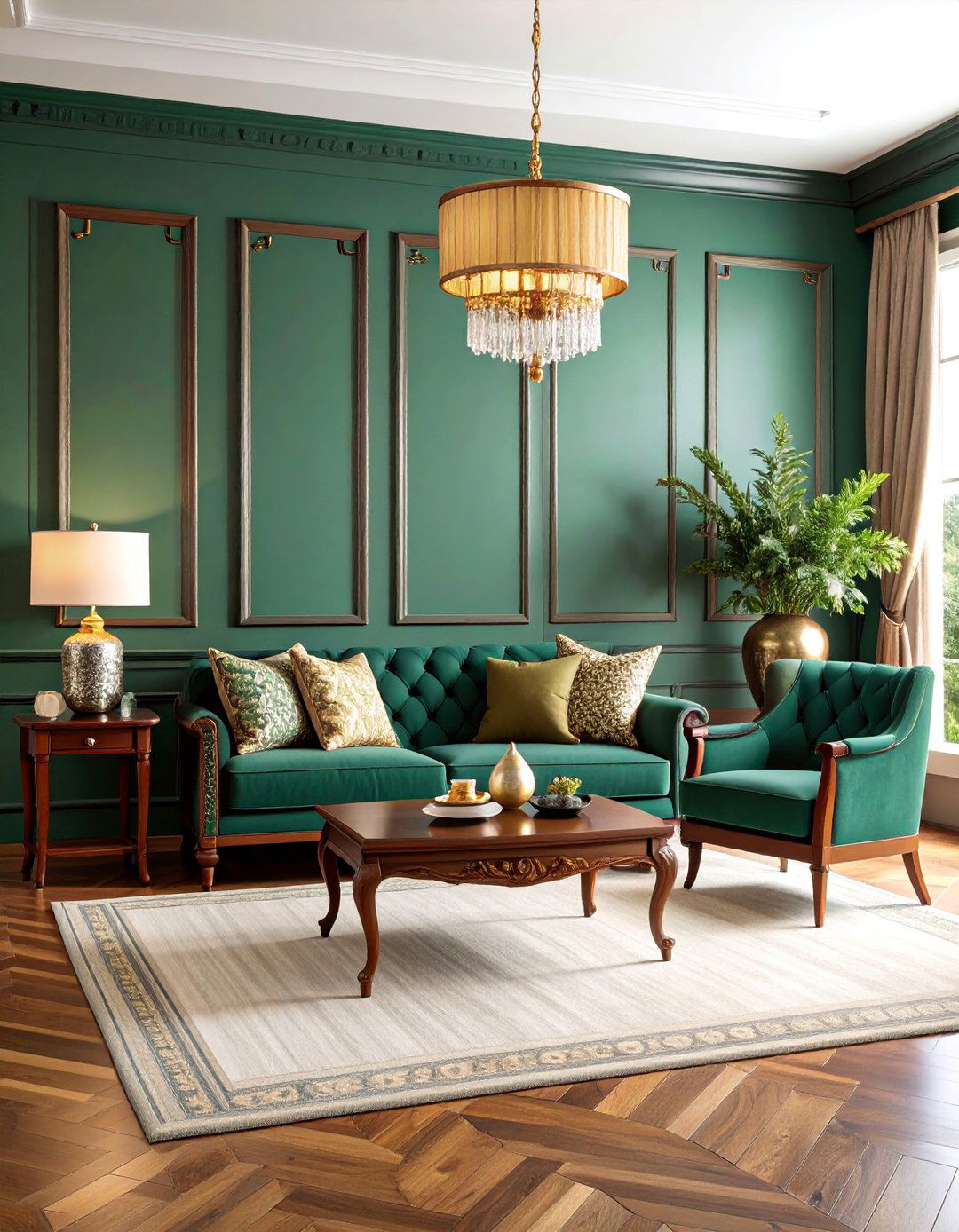
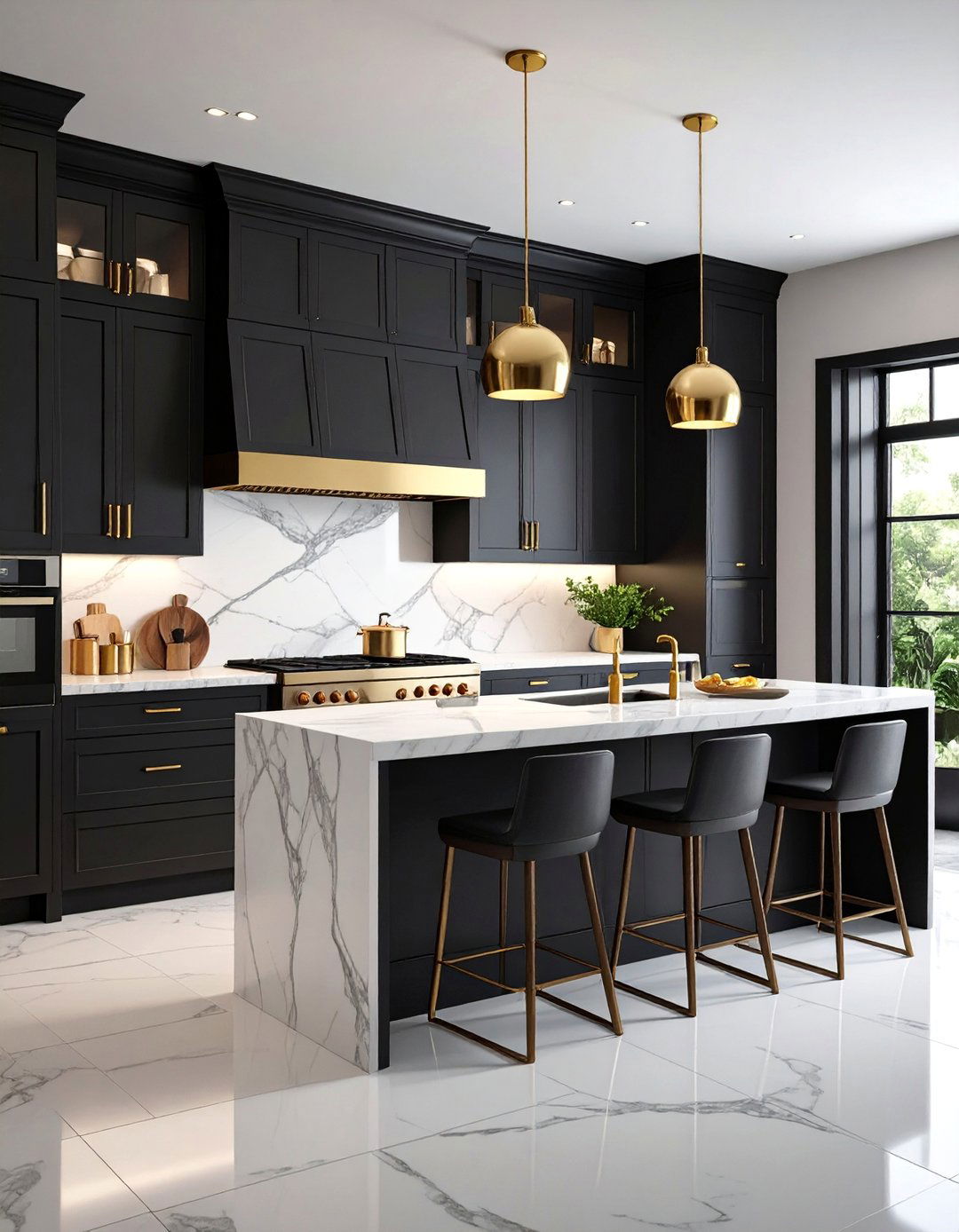
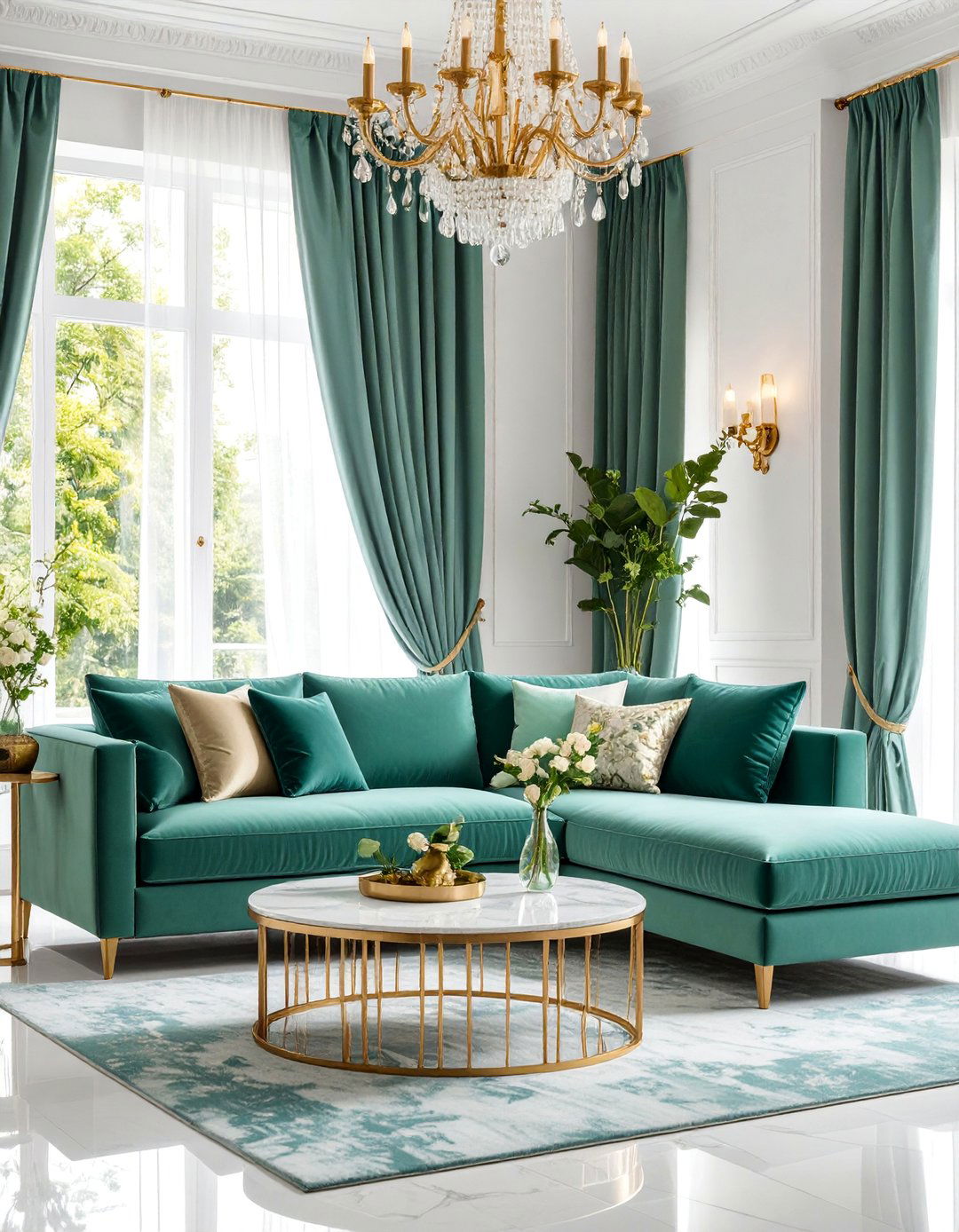
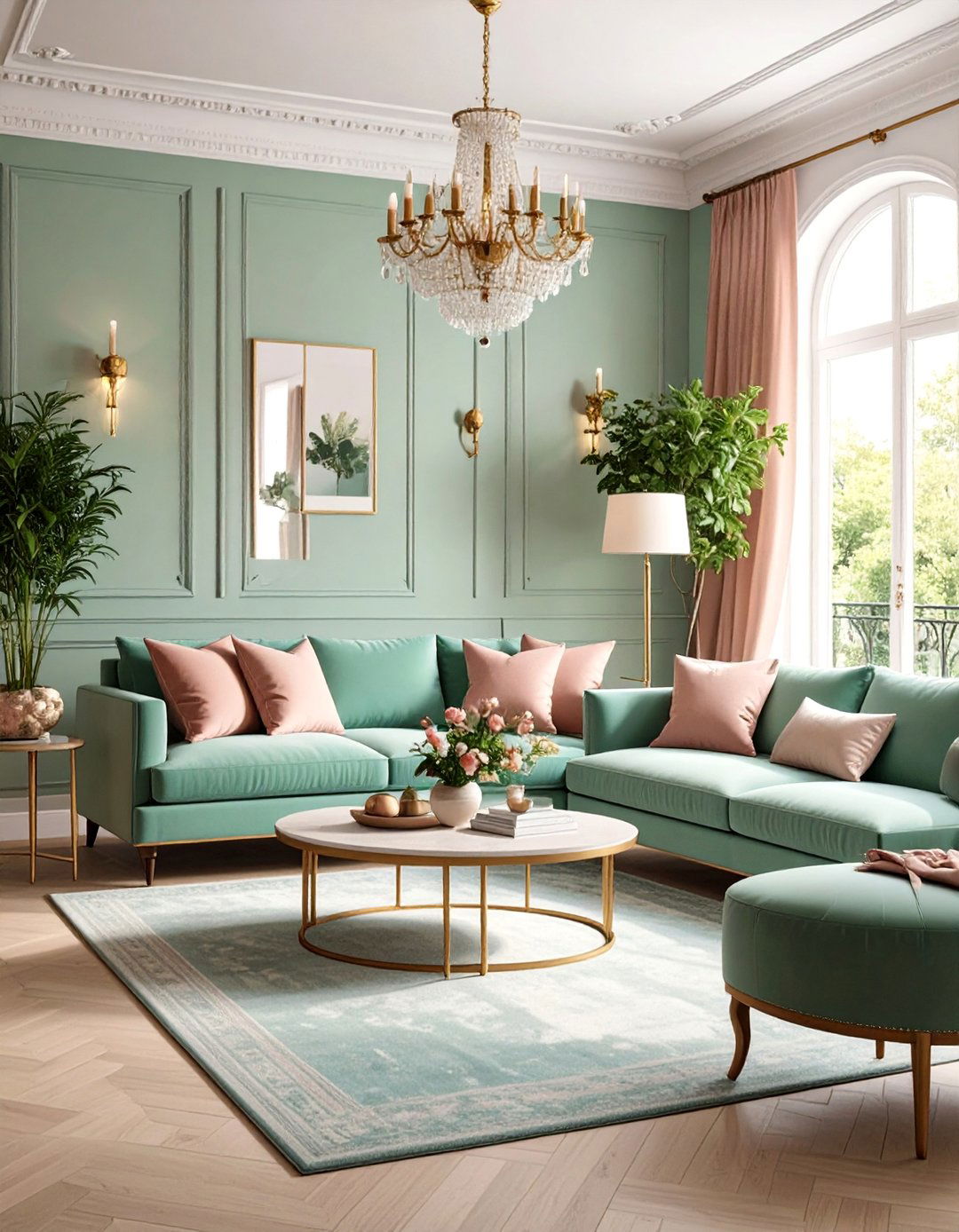

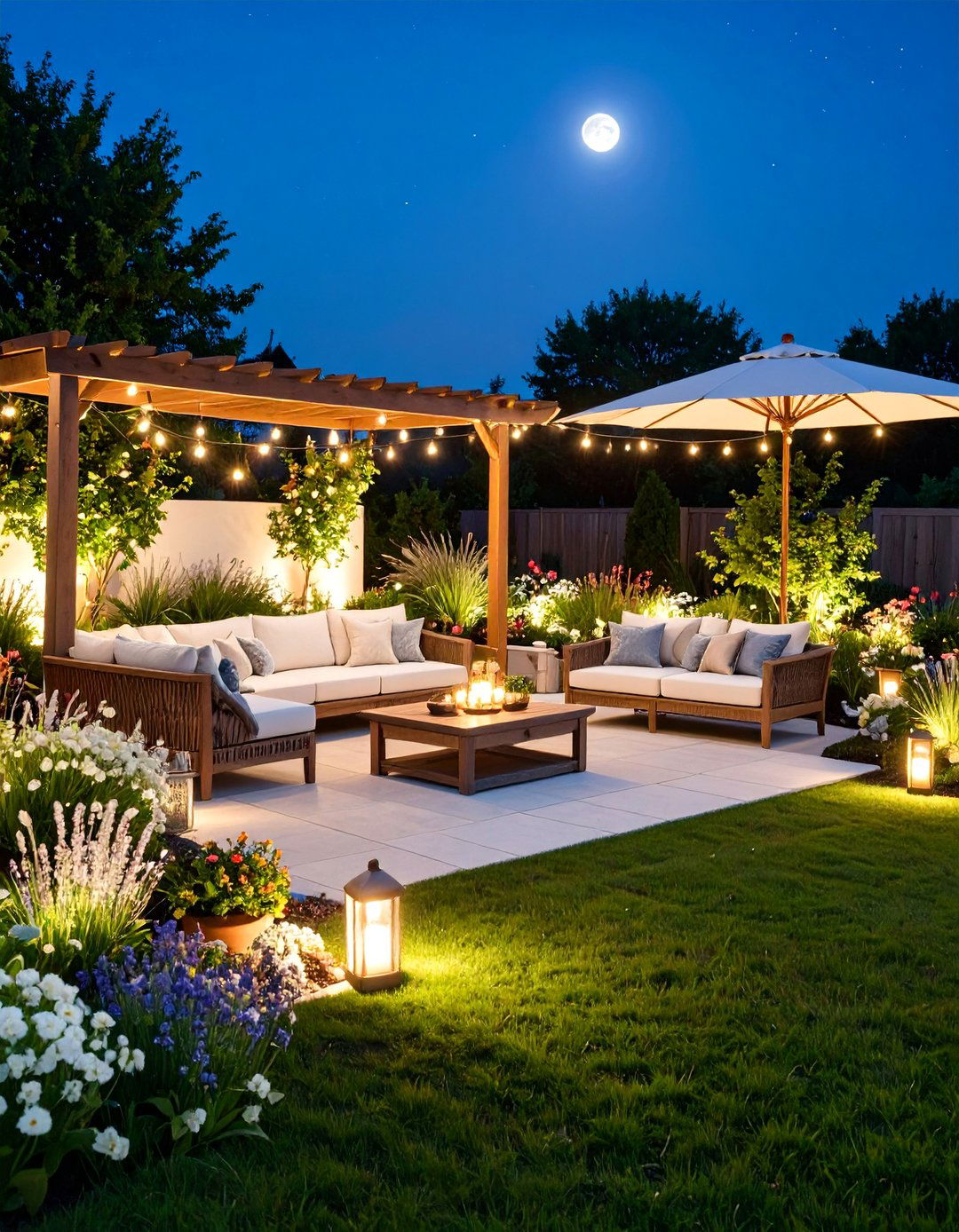


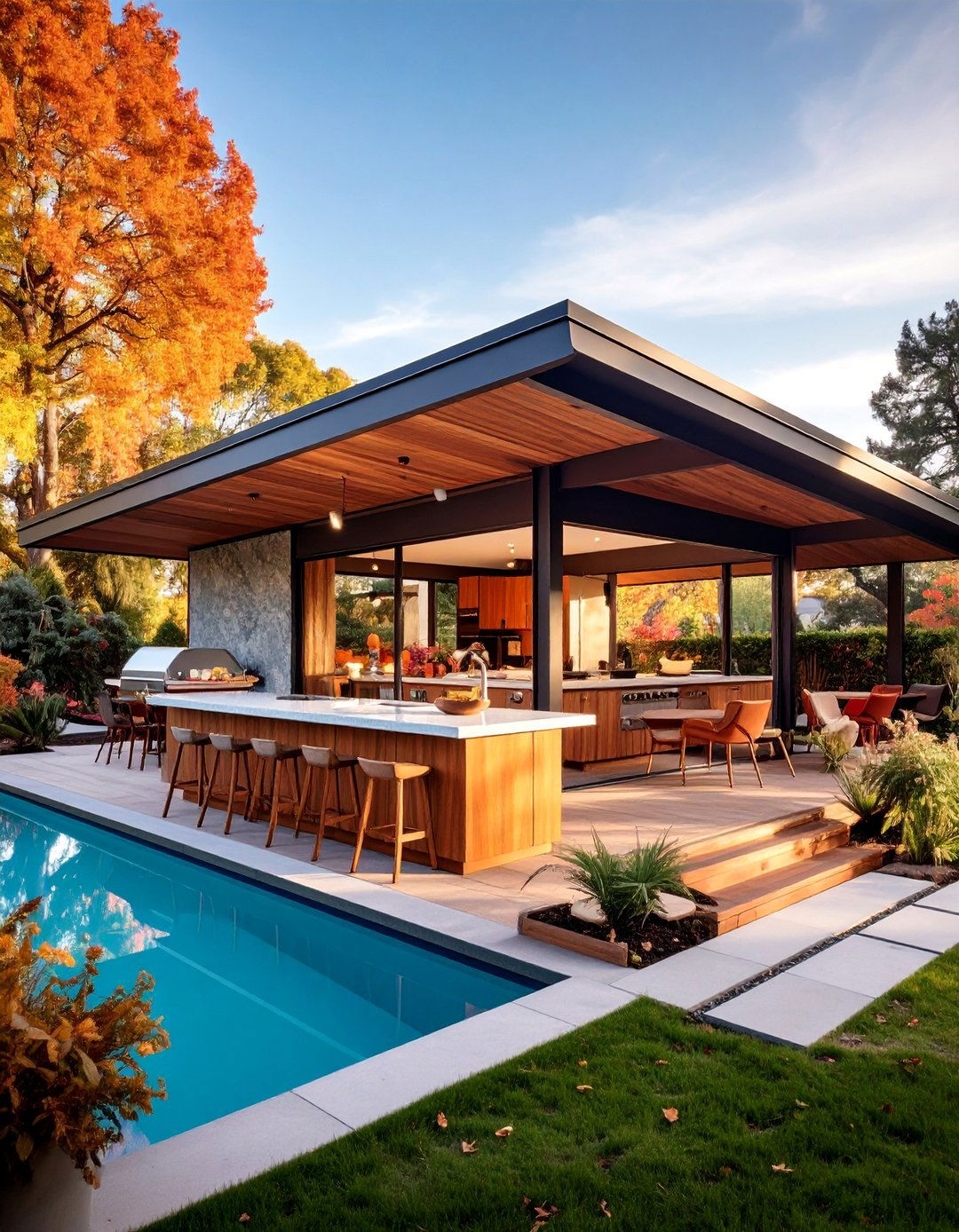



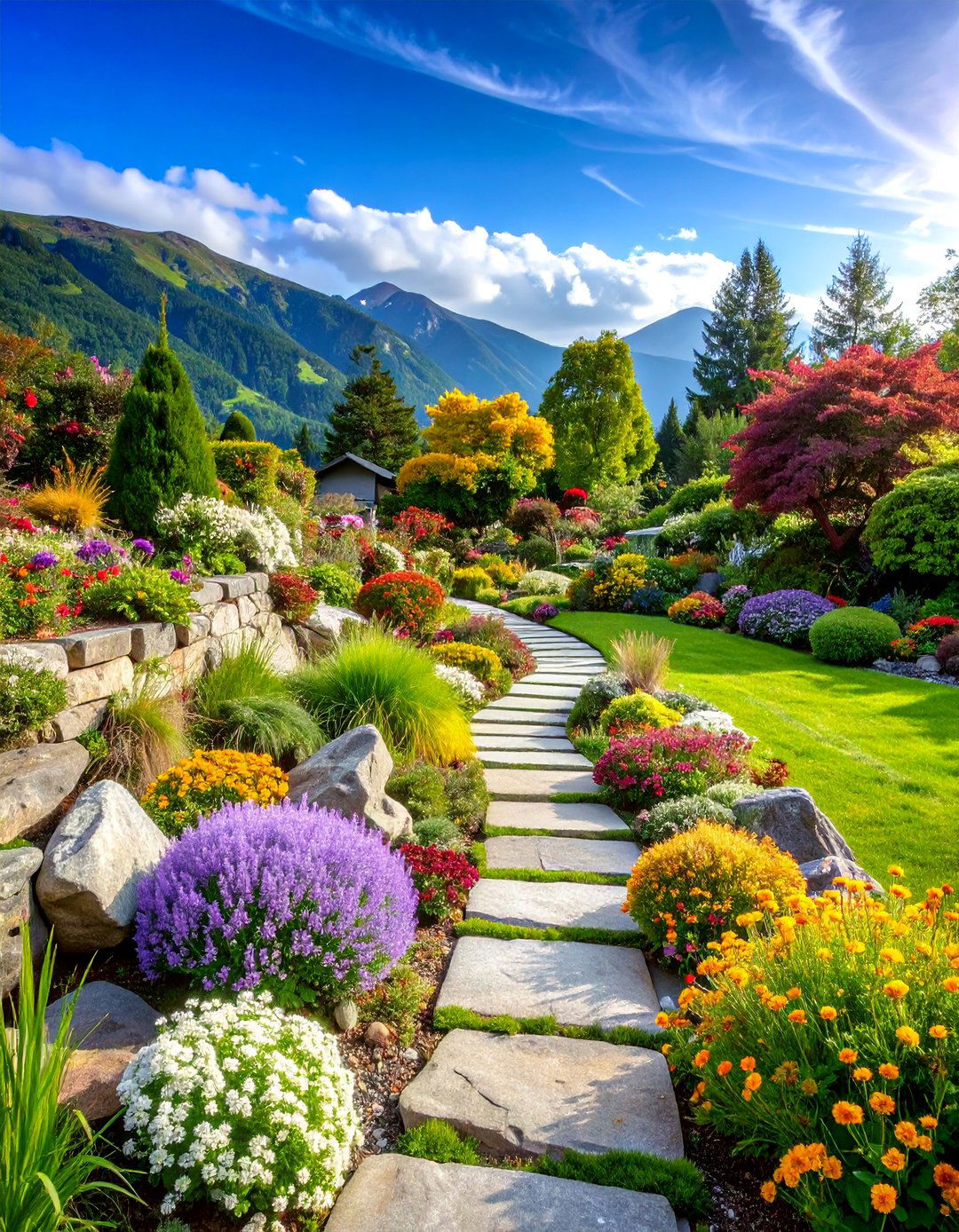
Leave a Reply